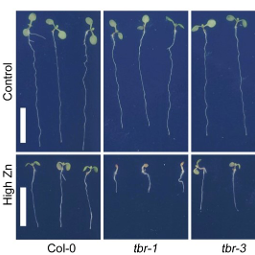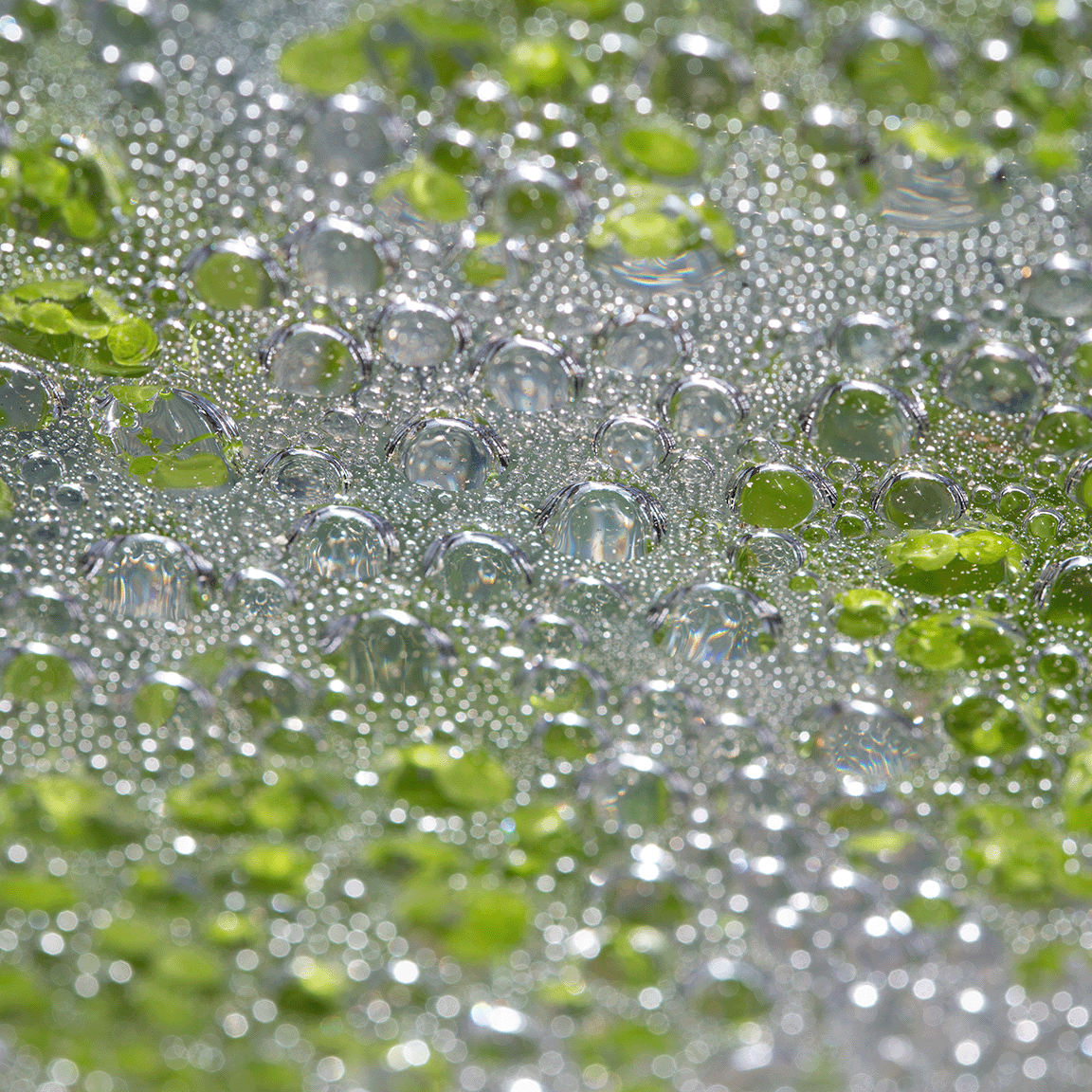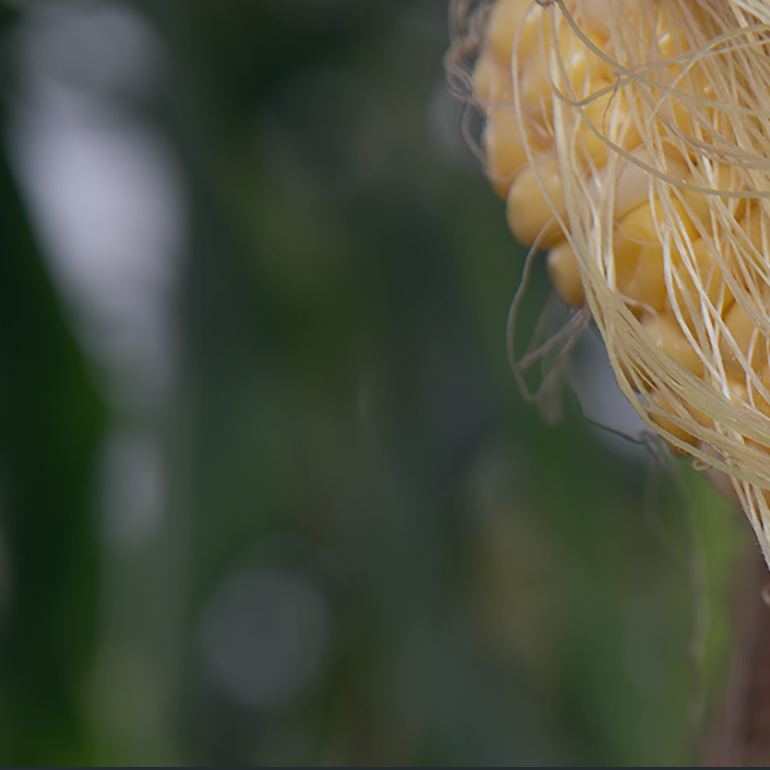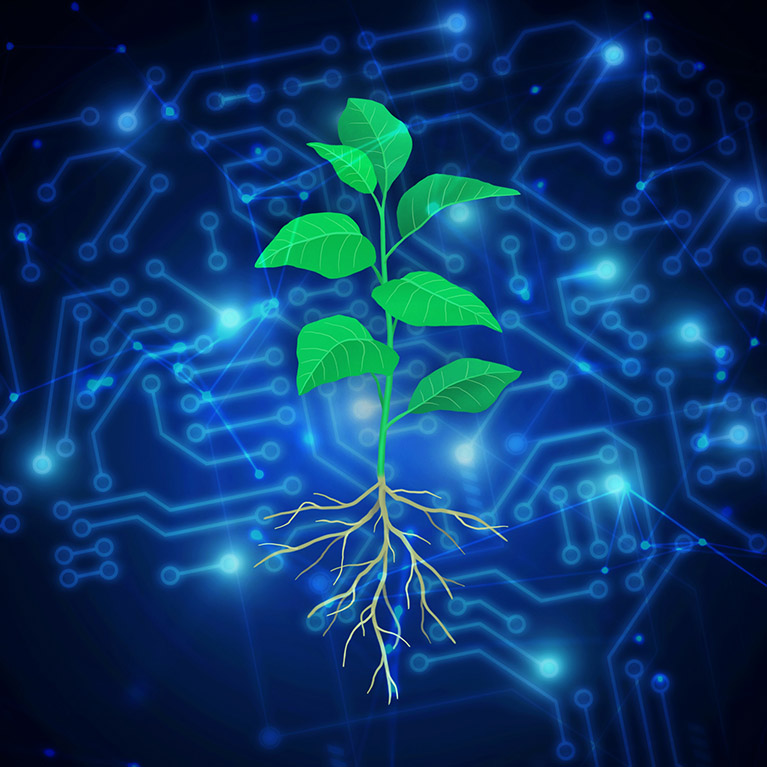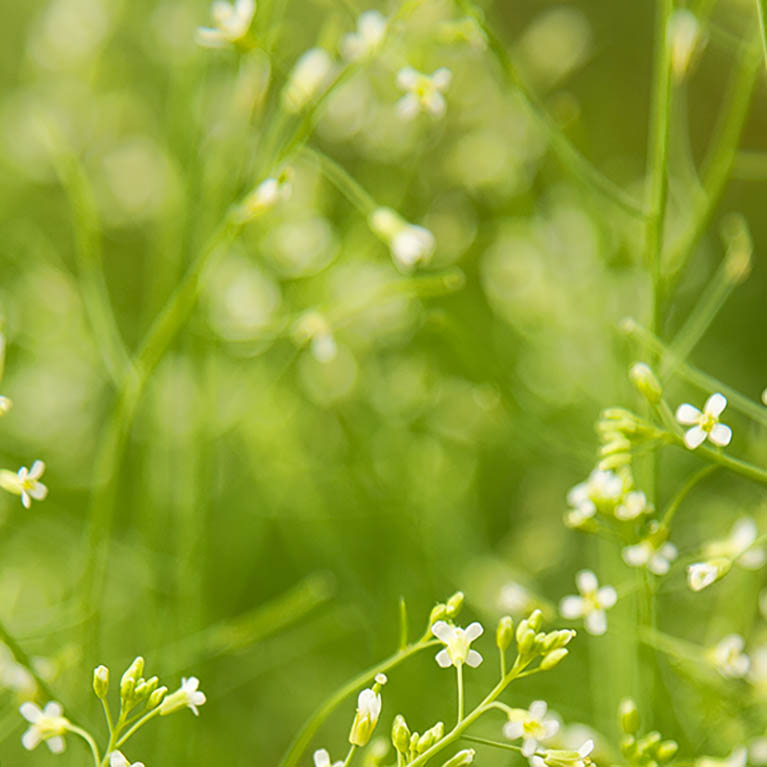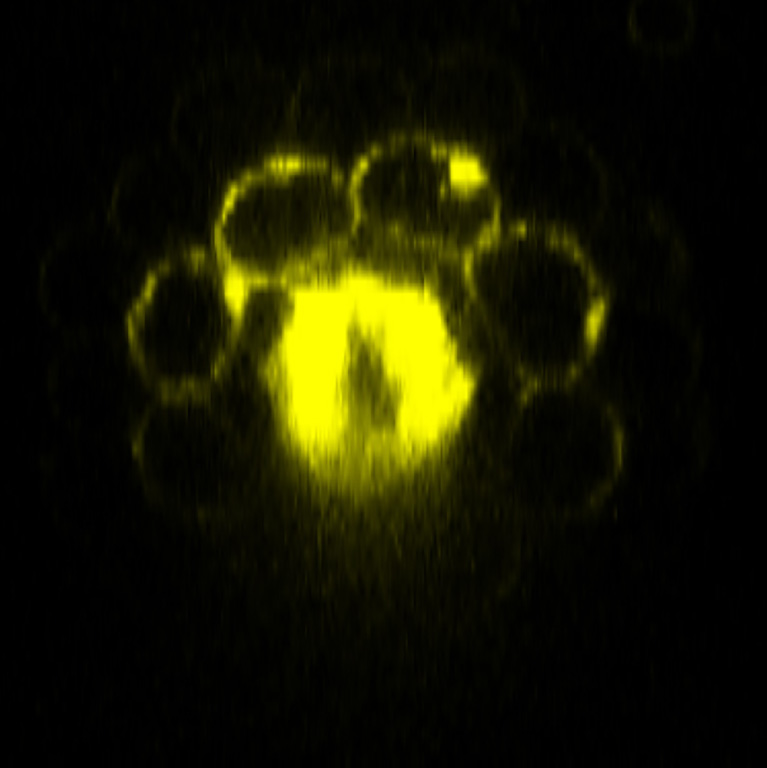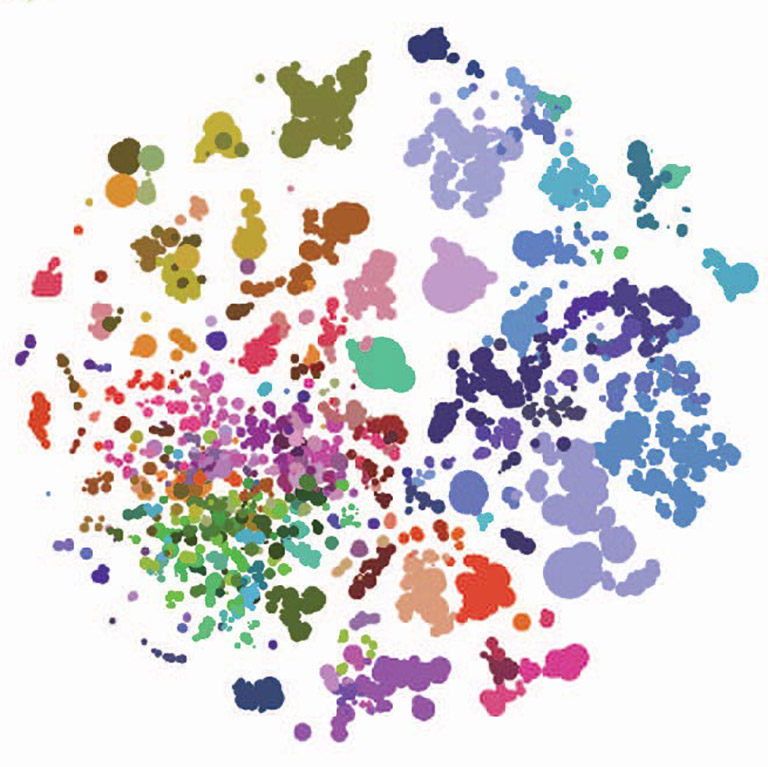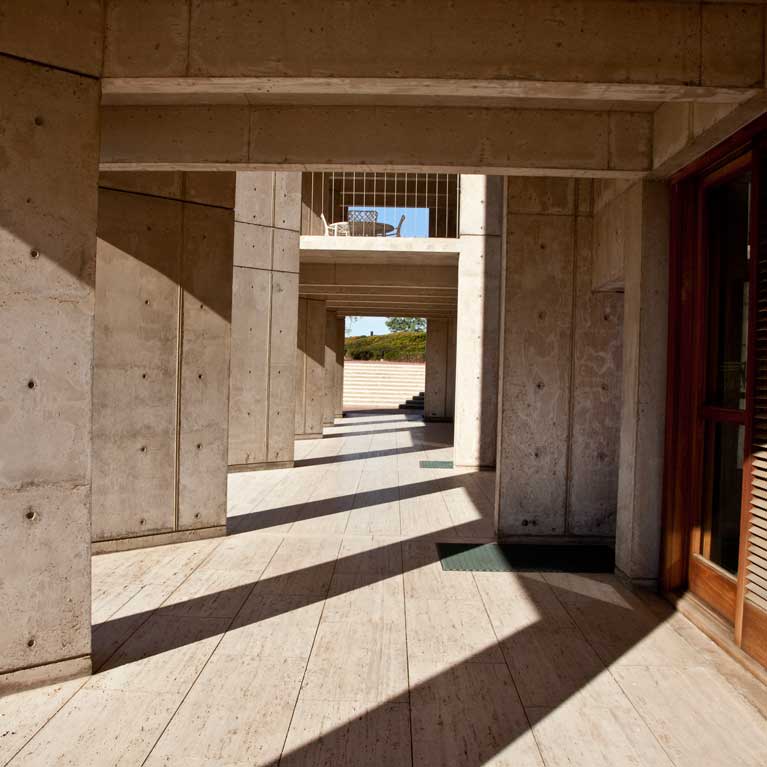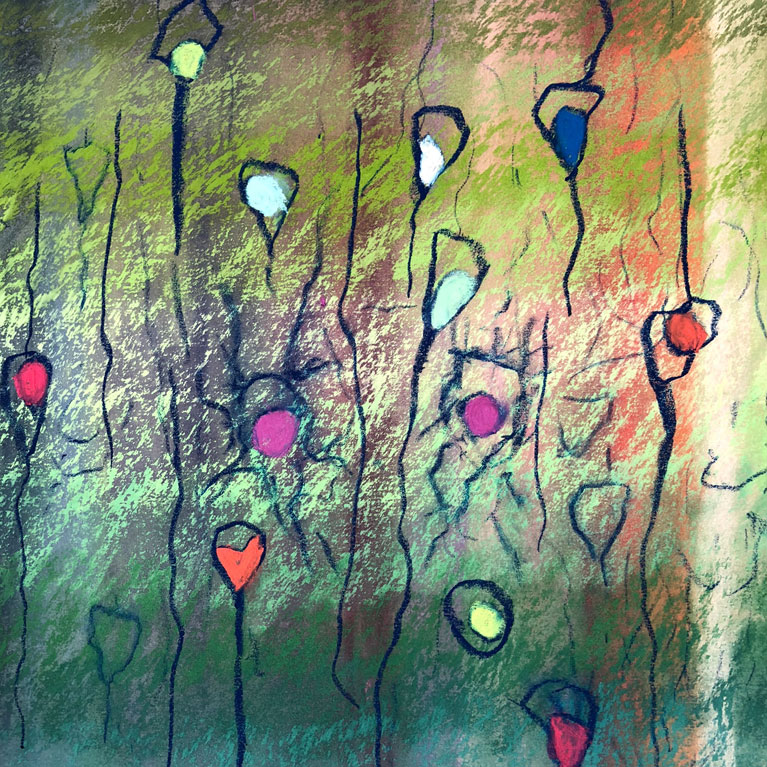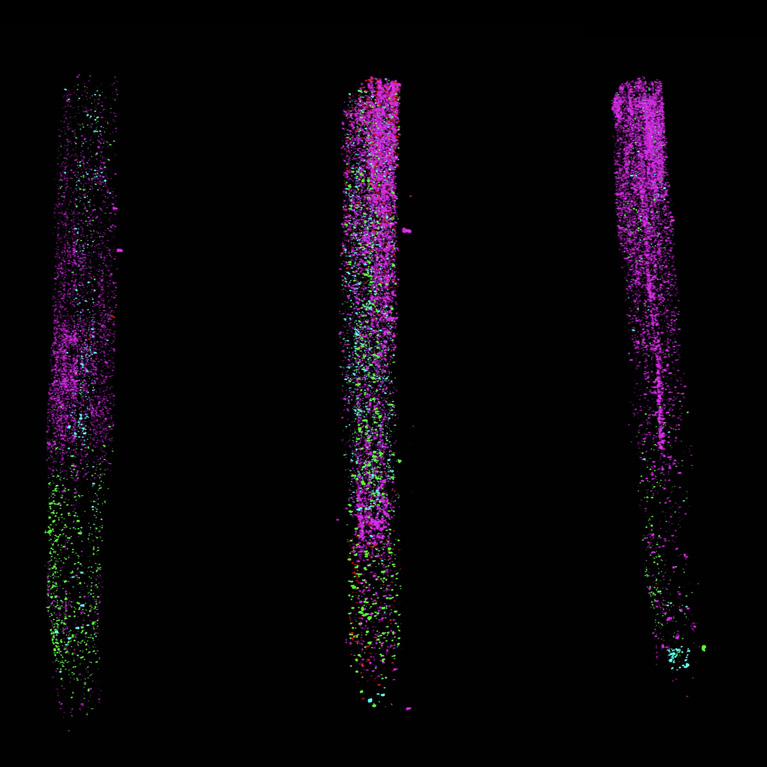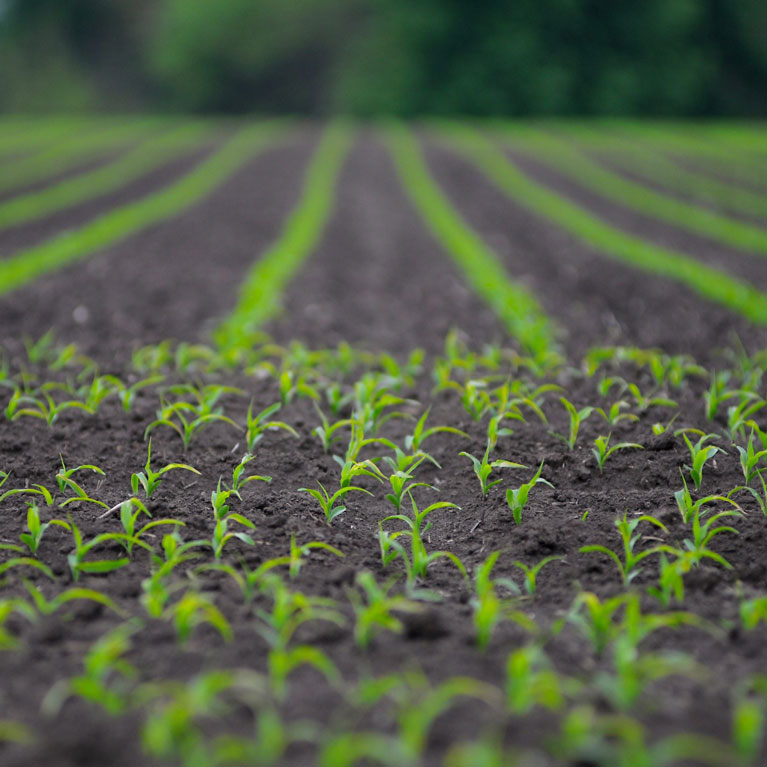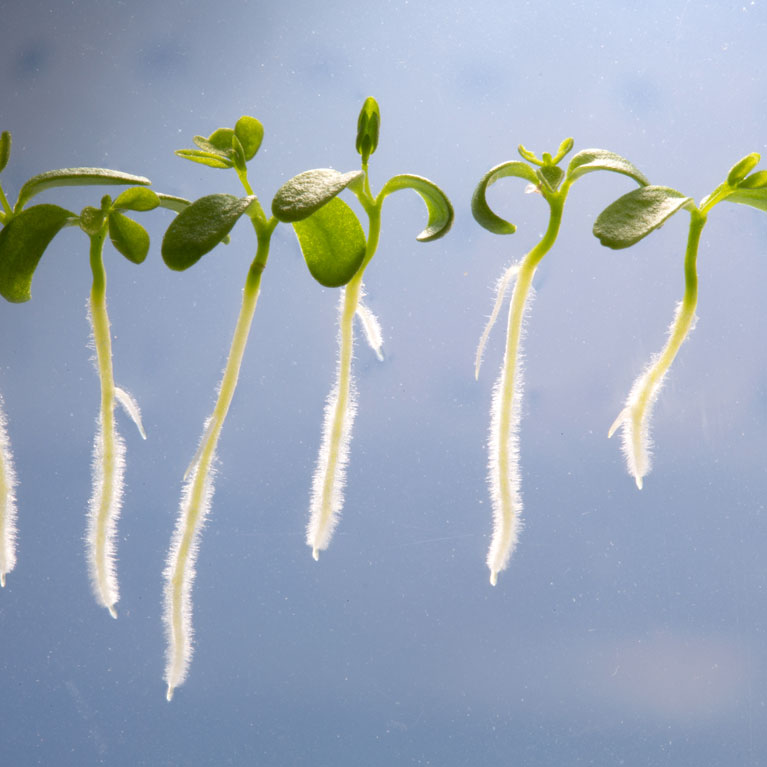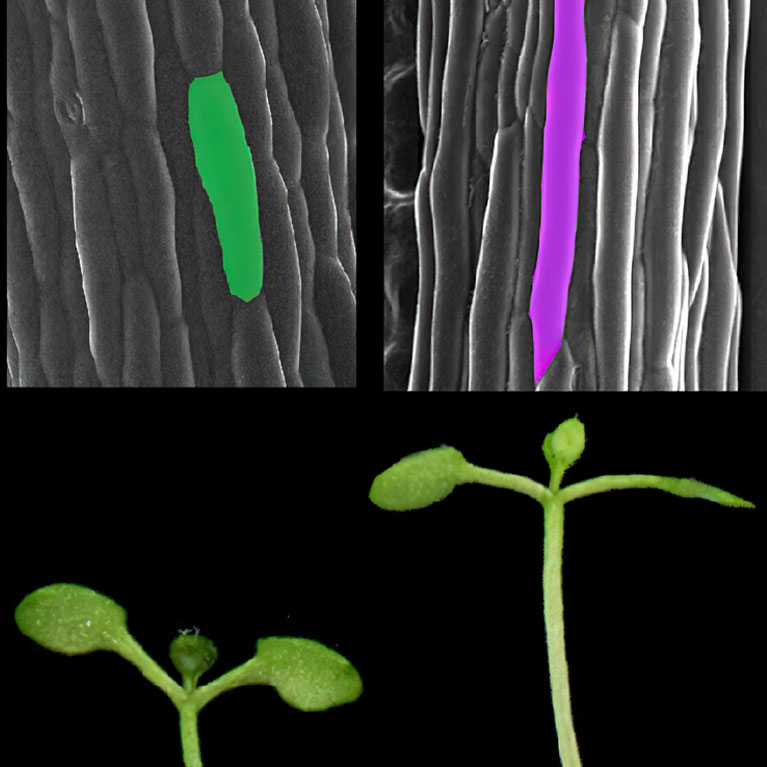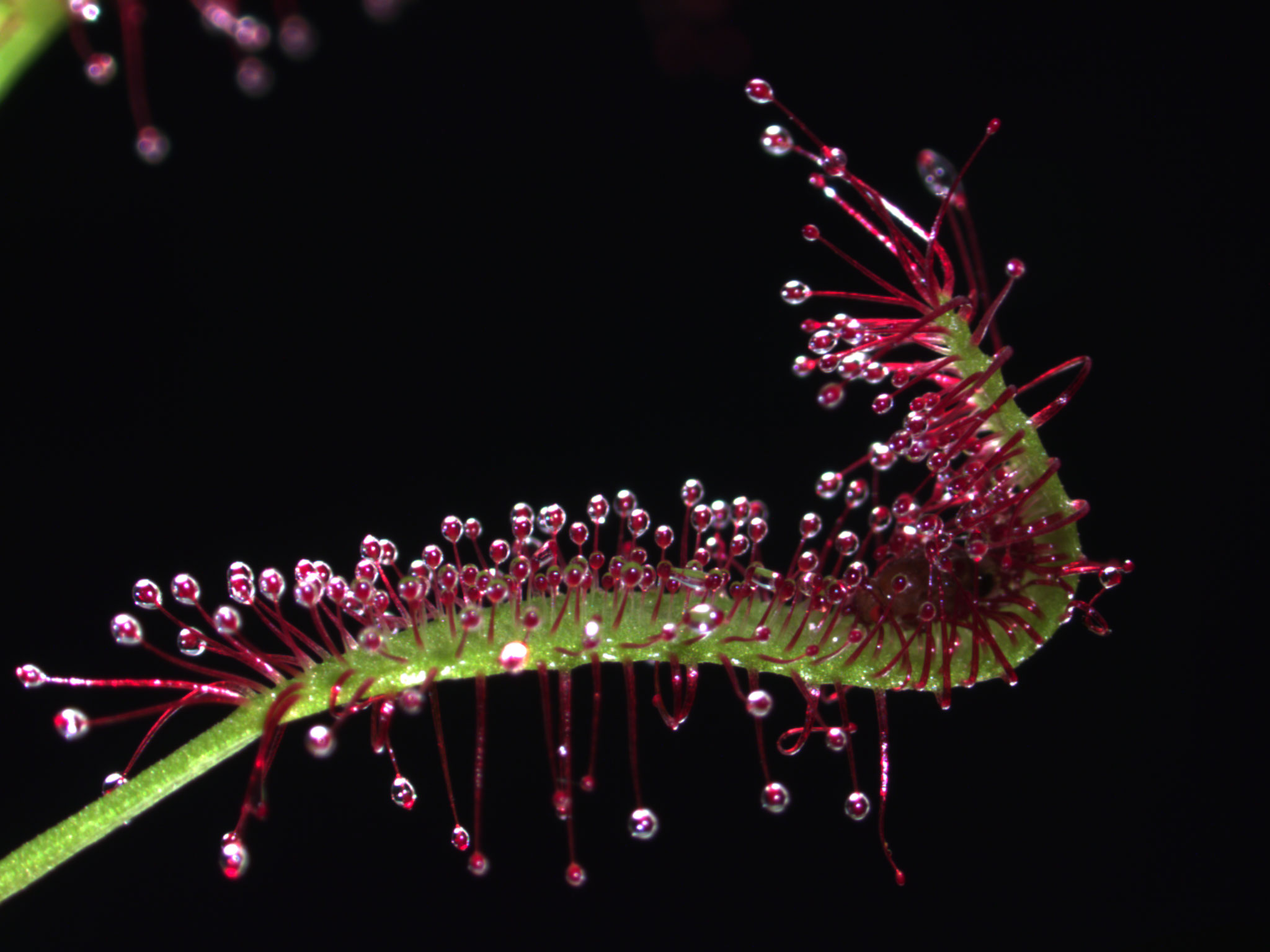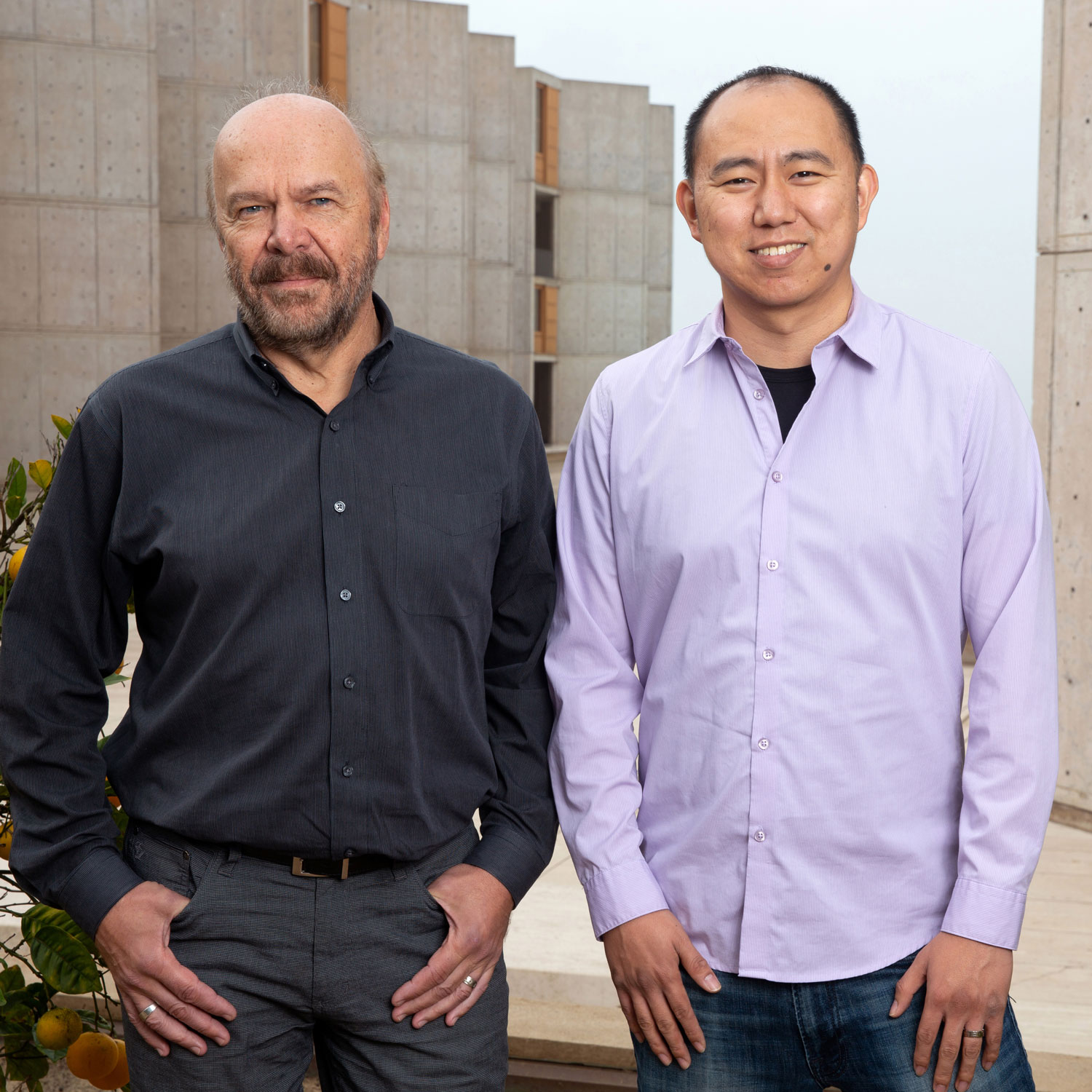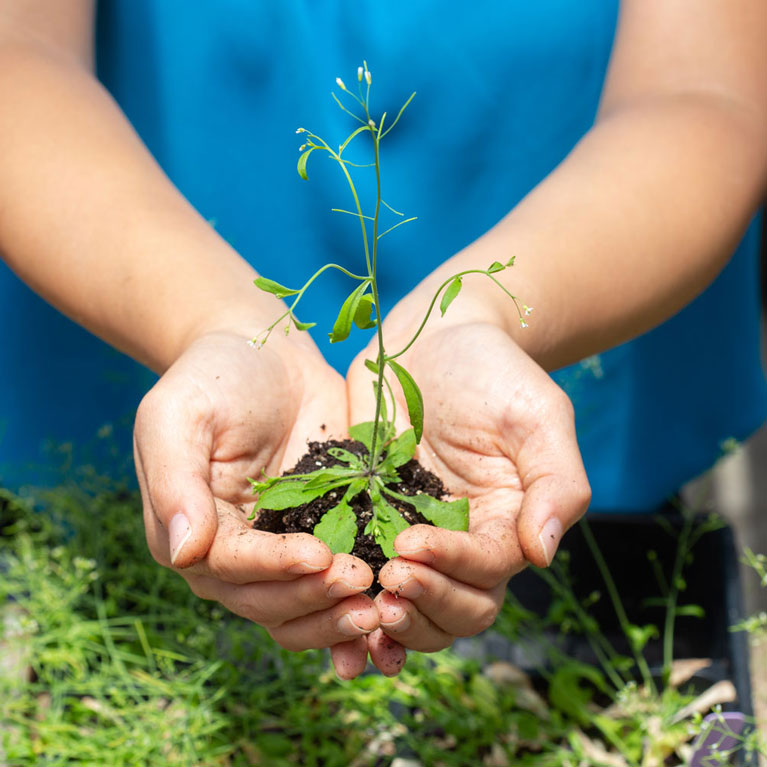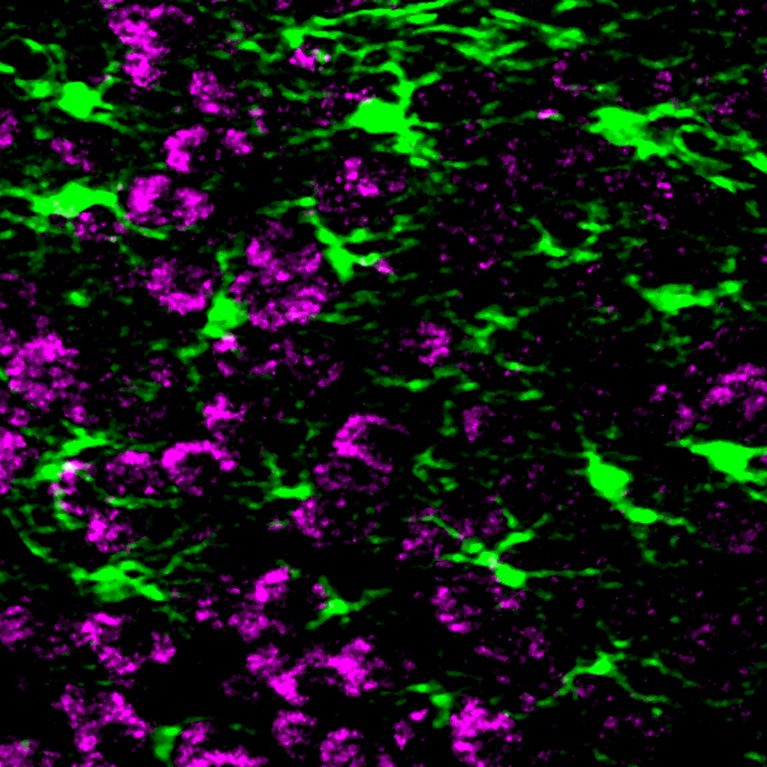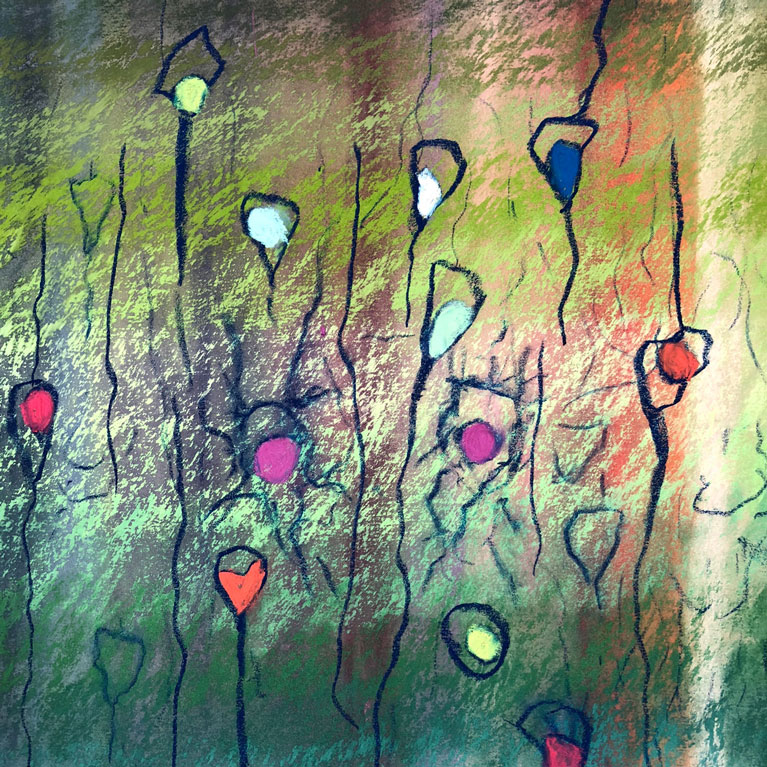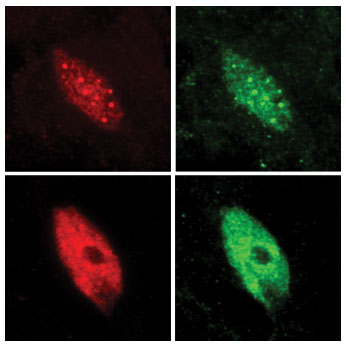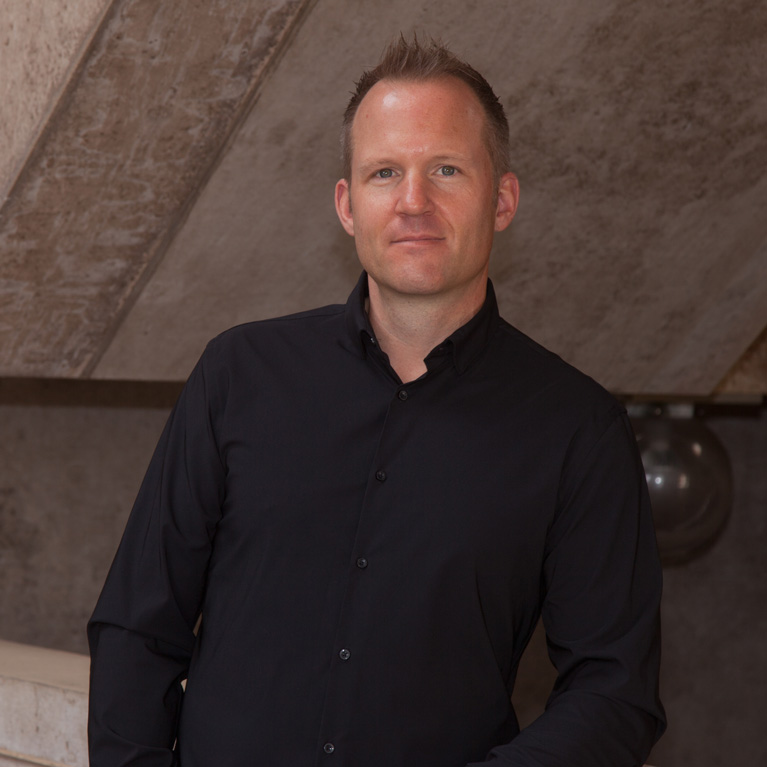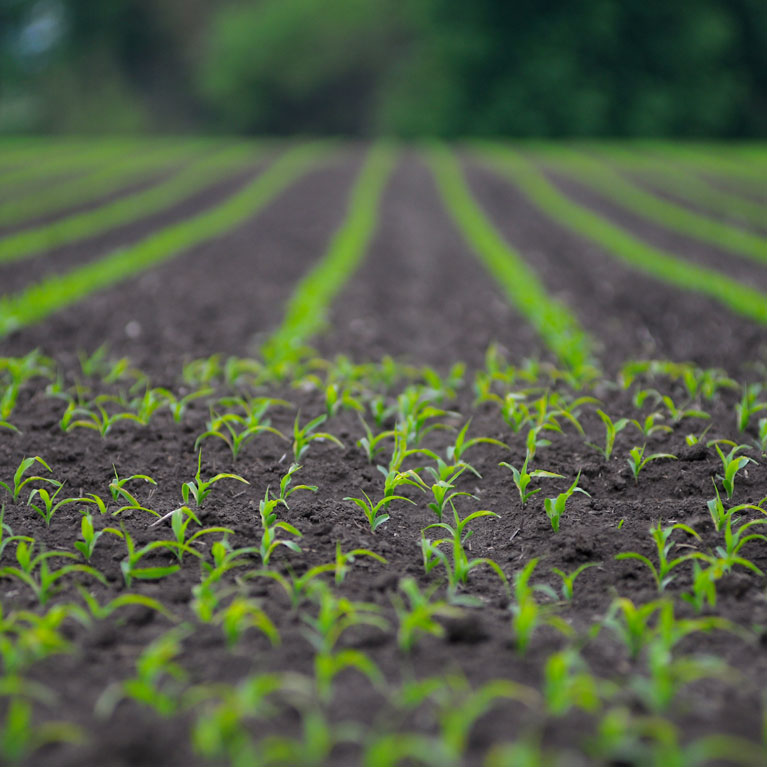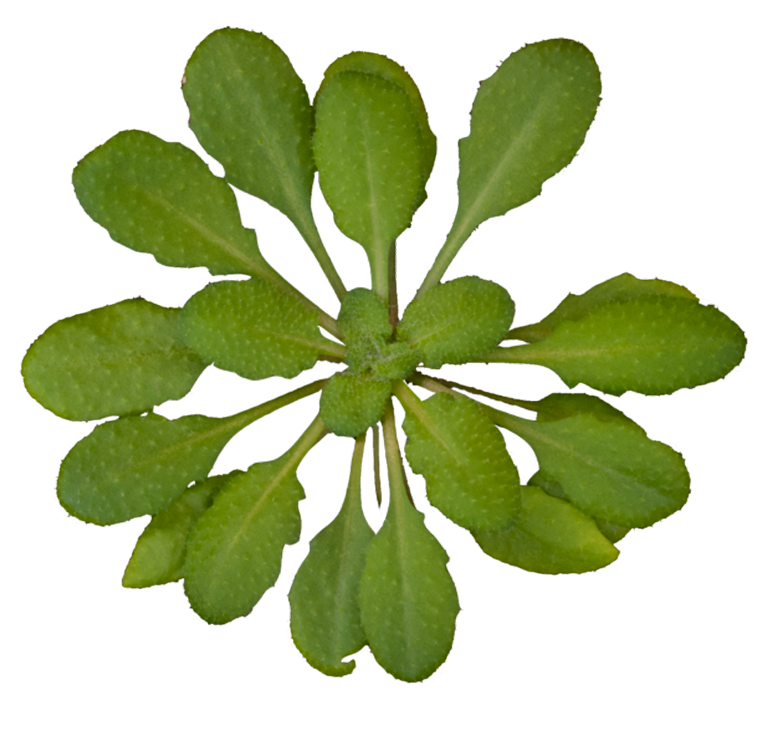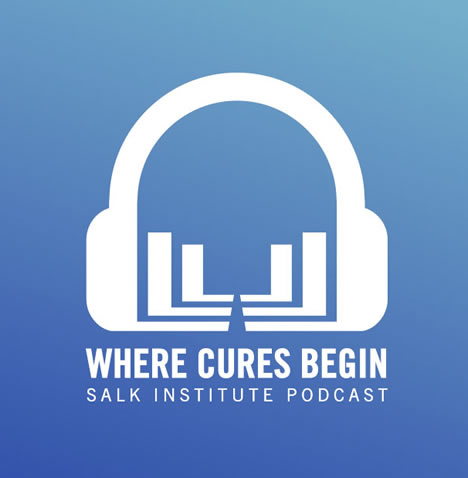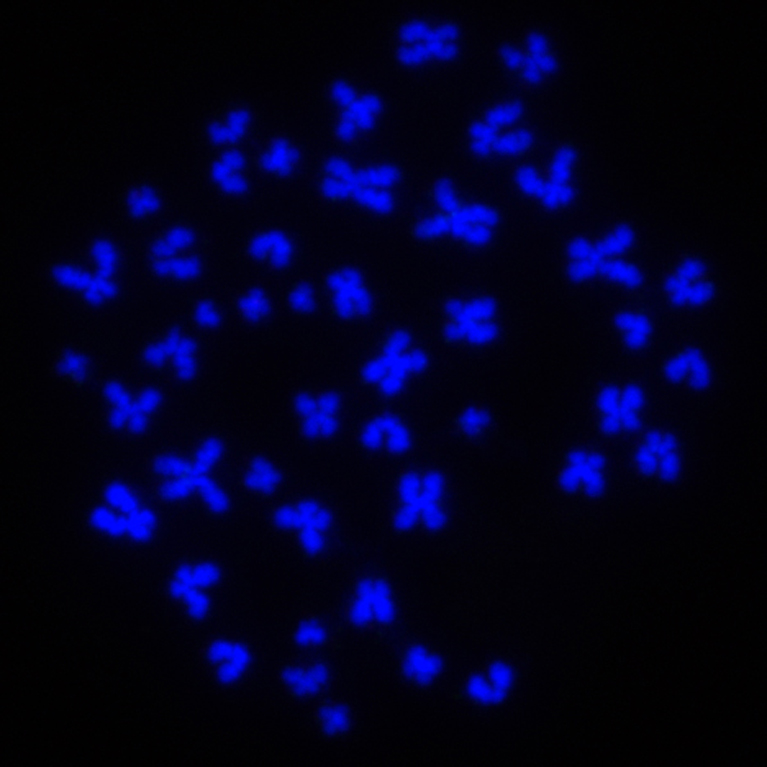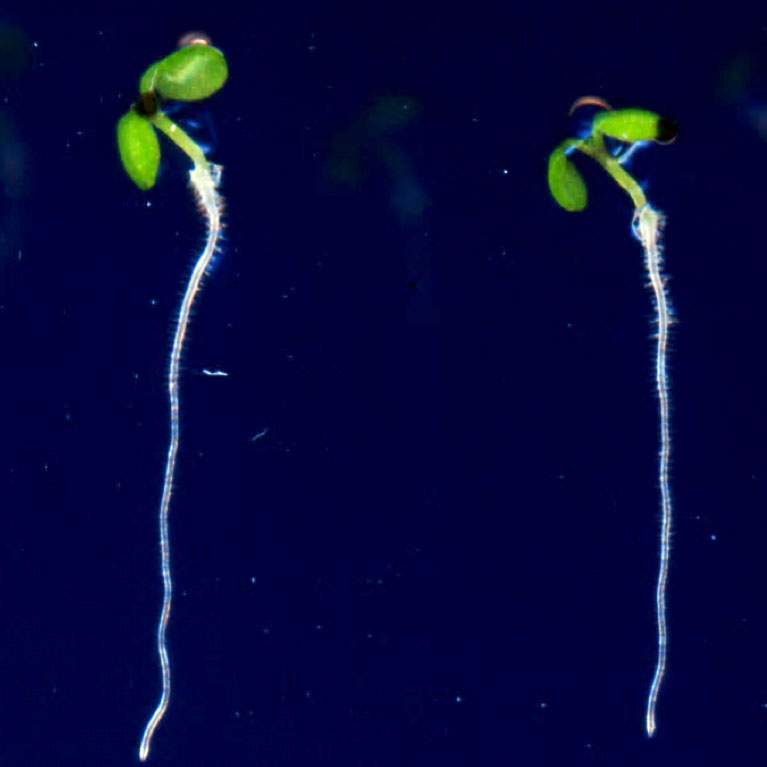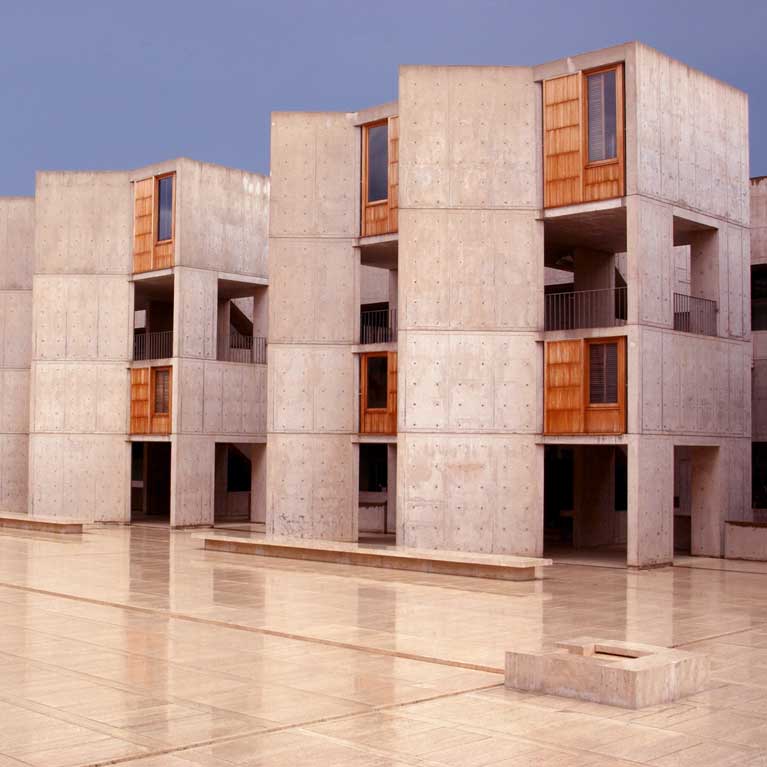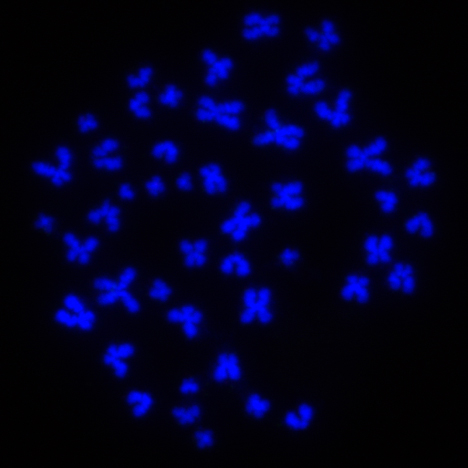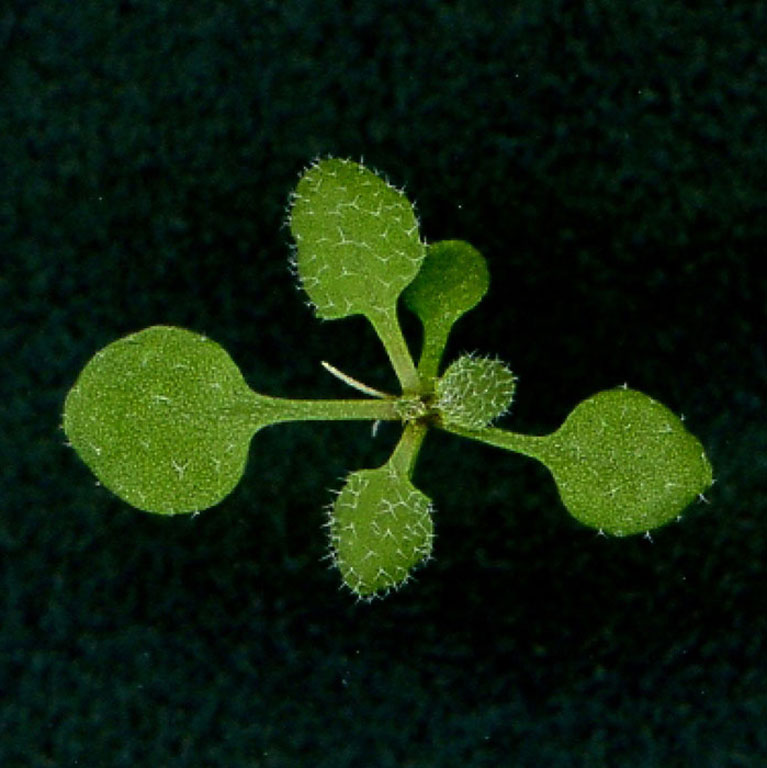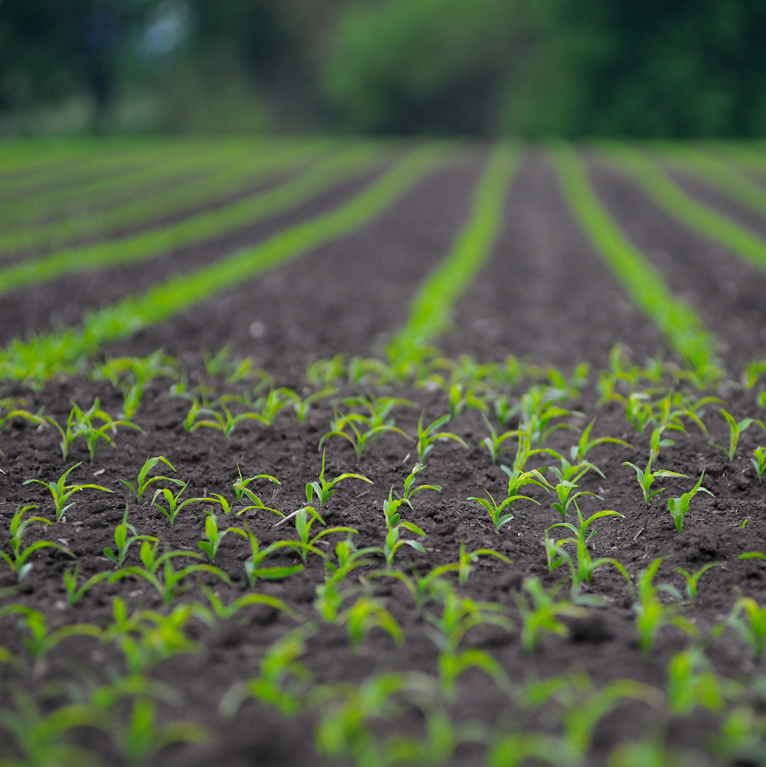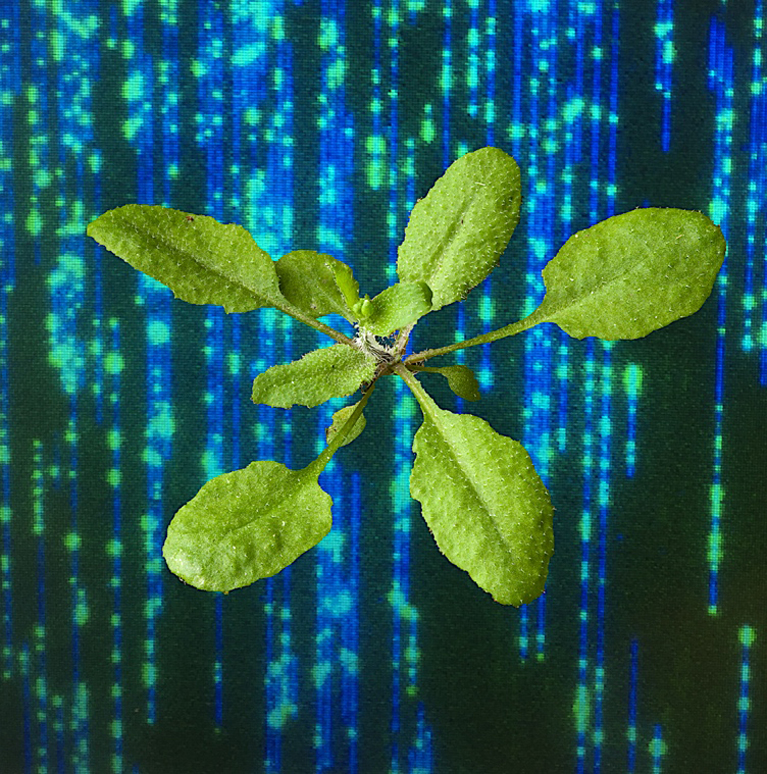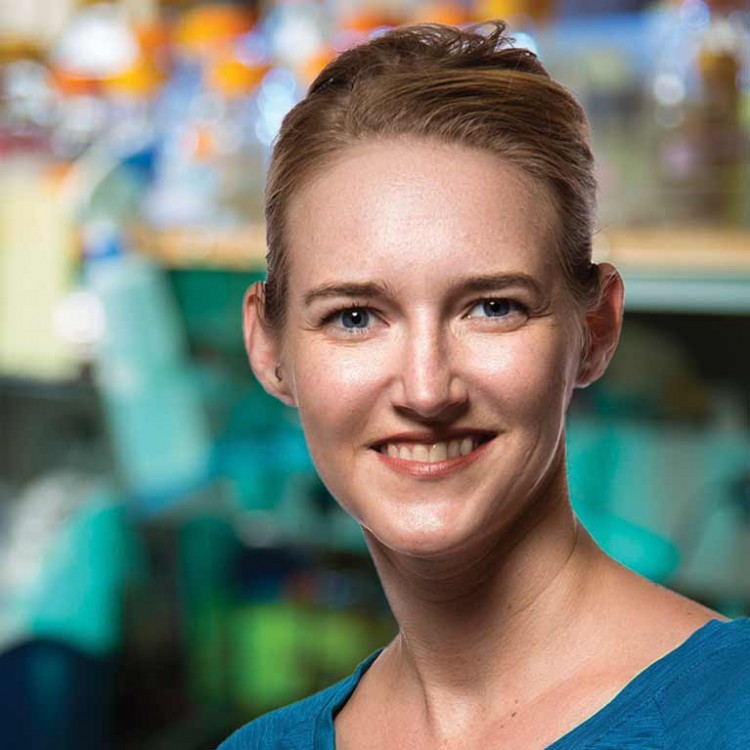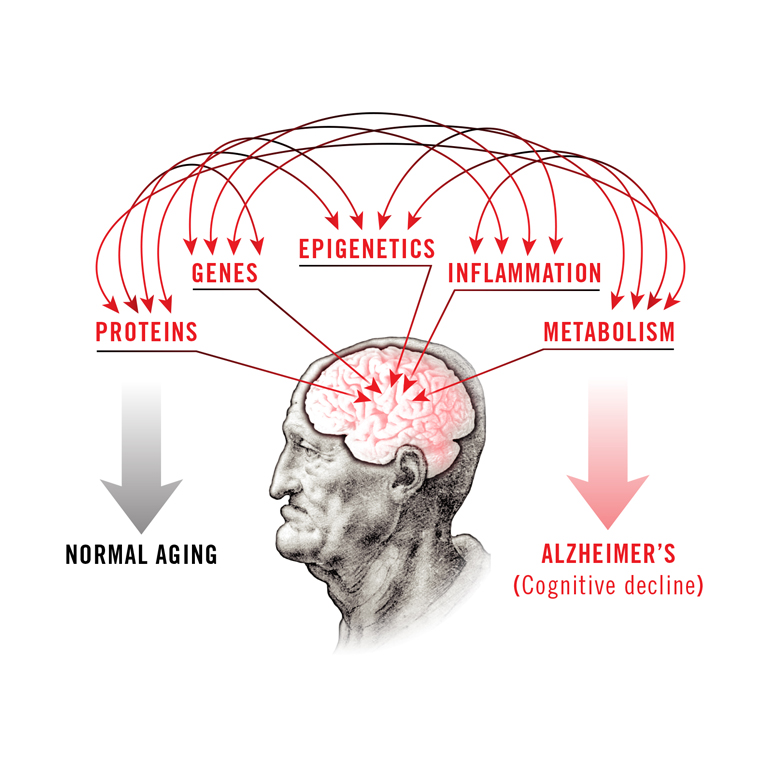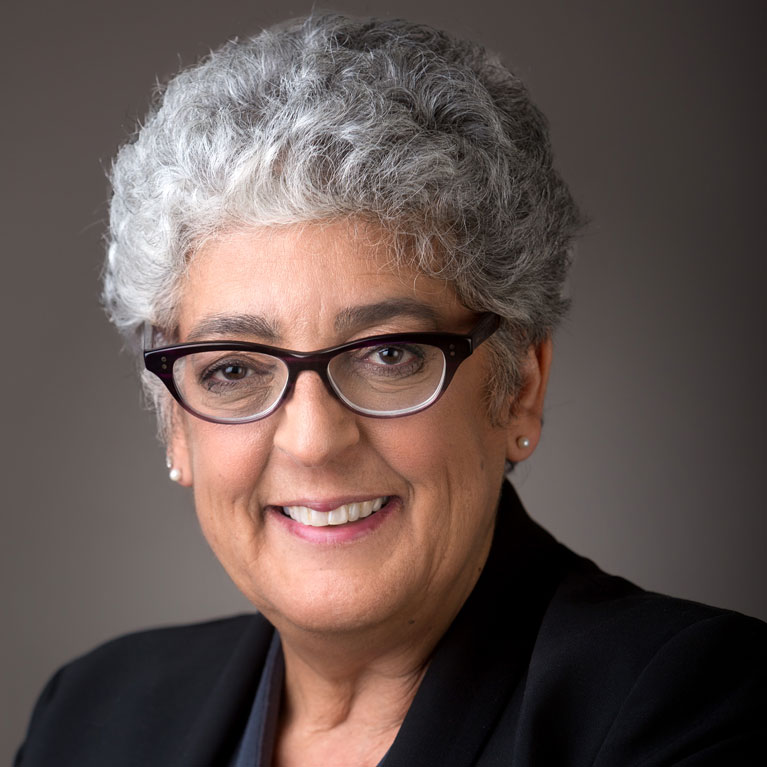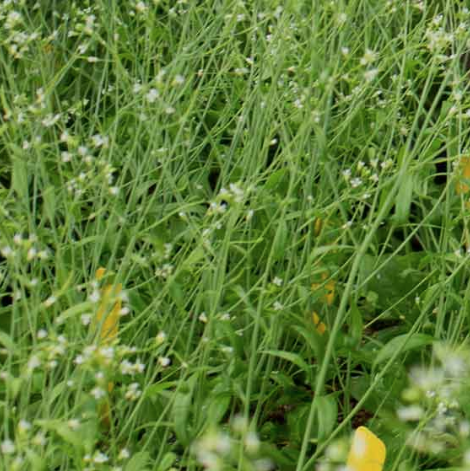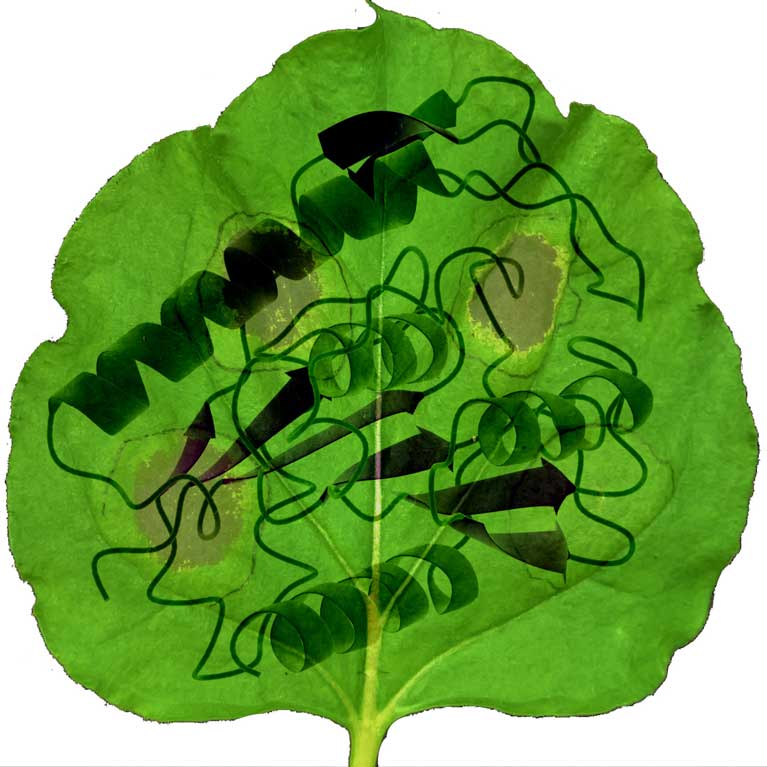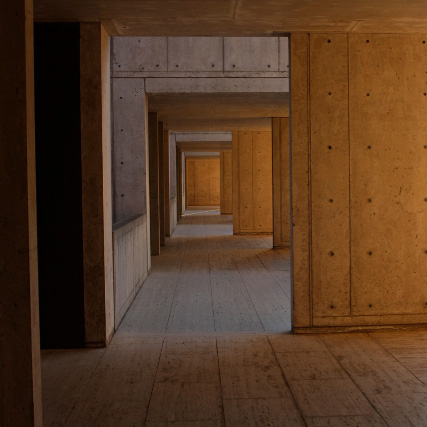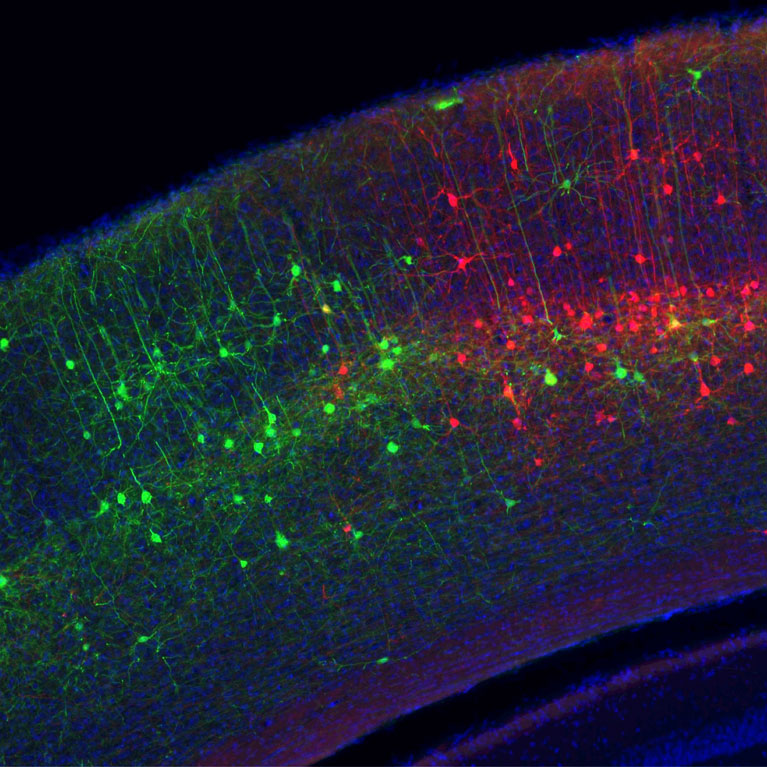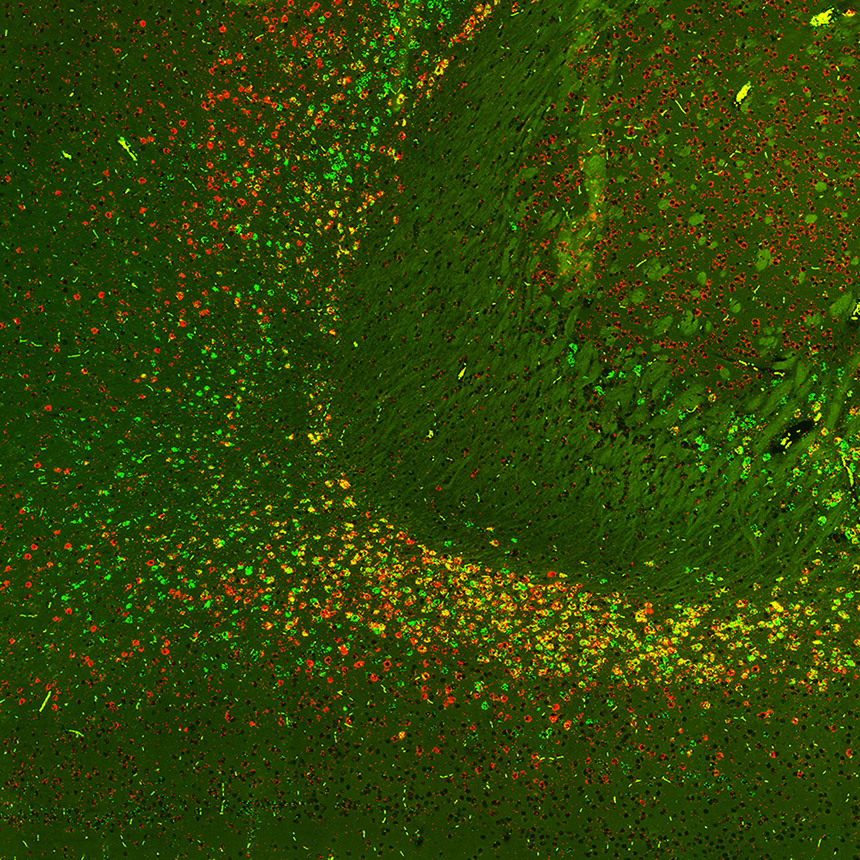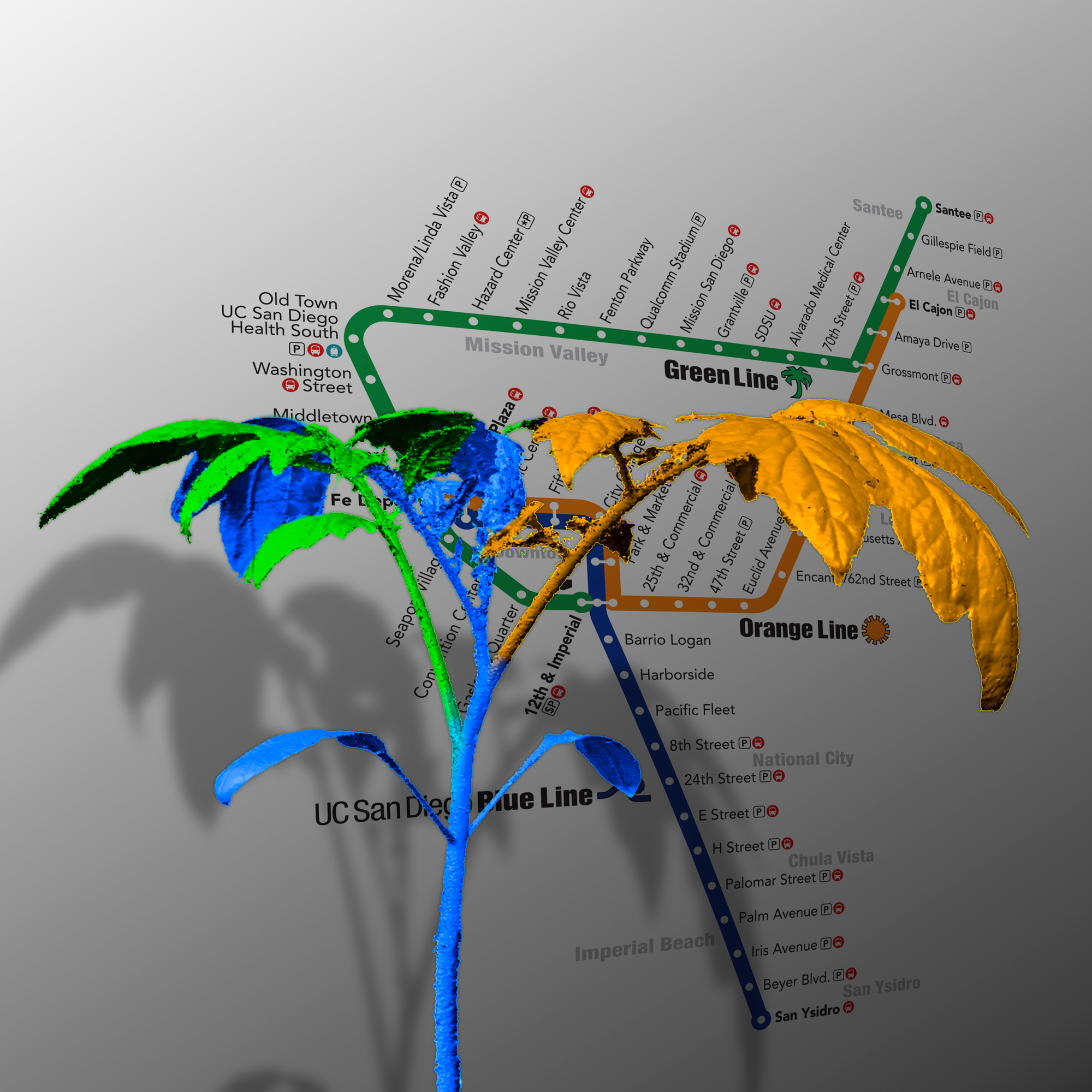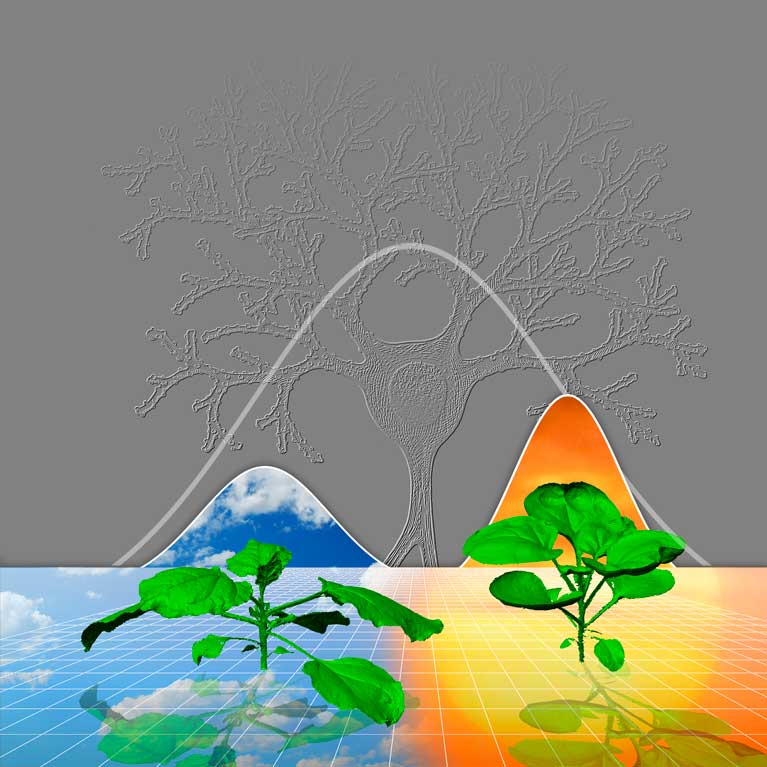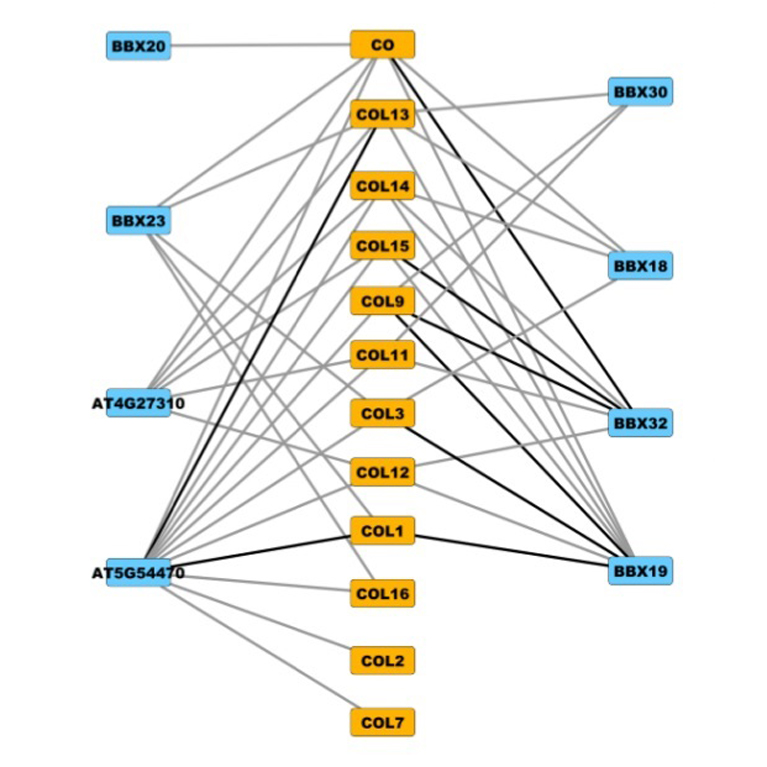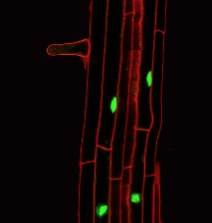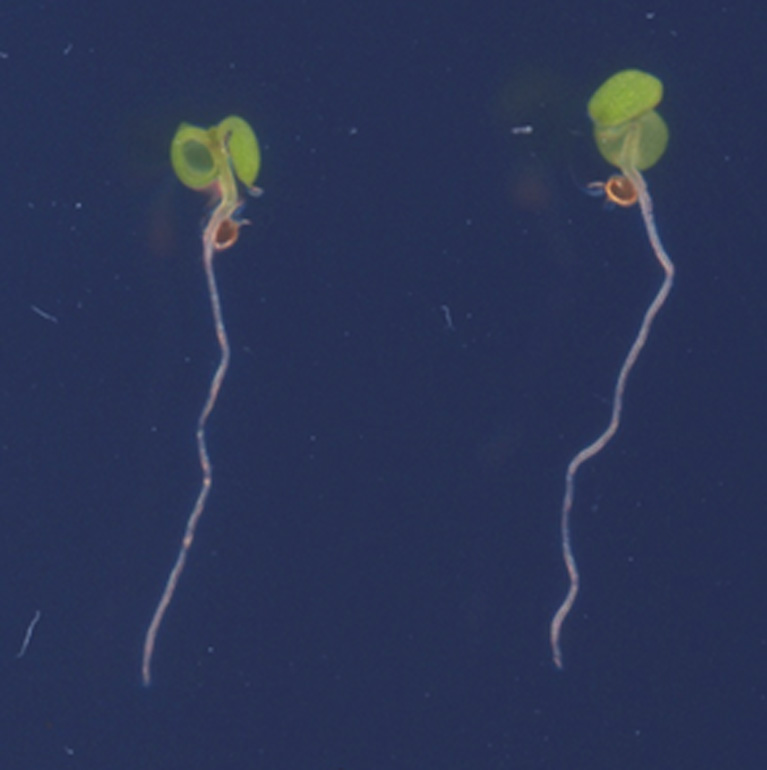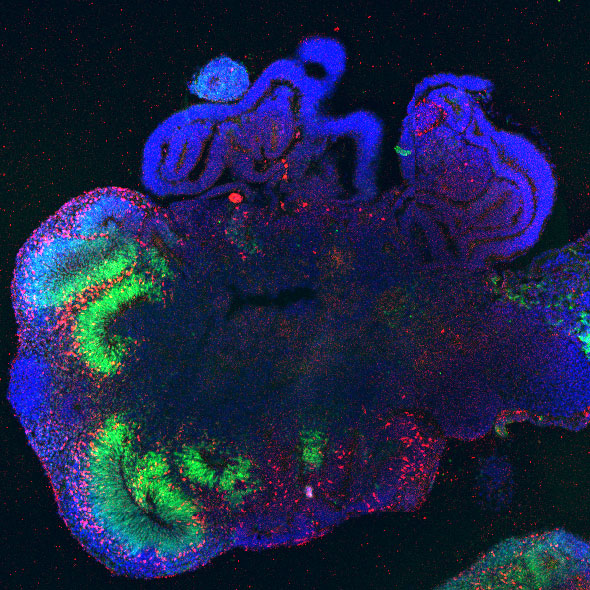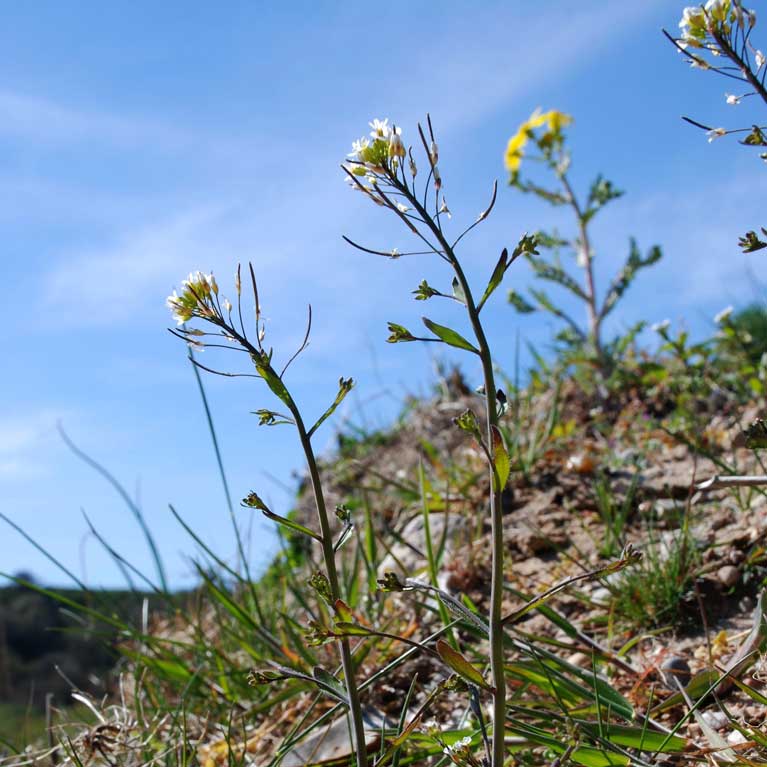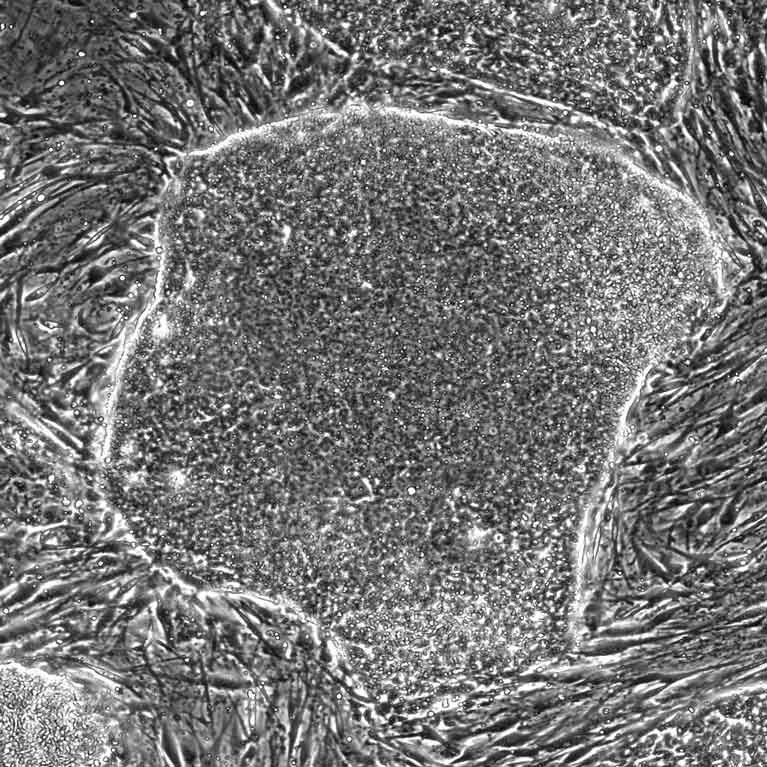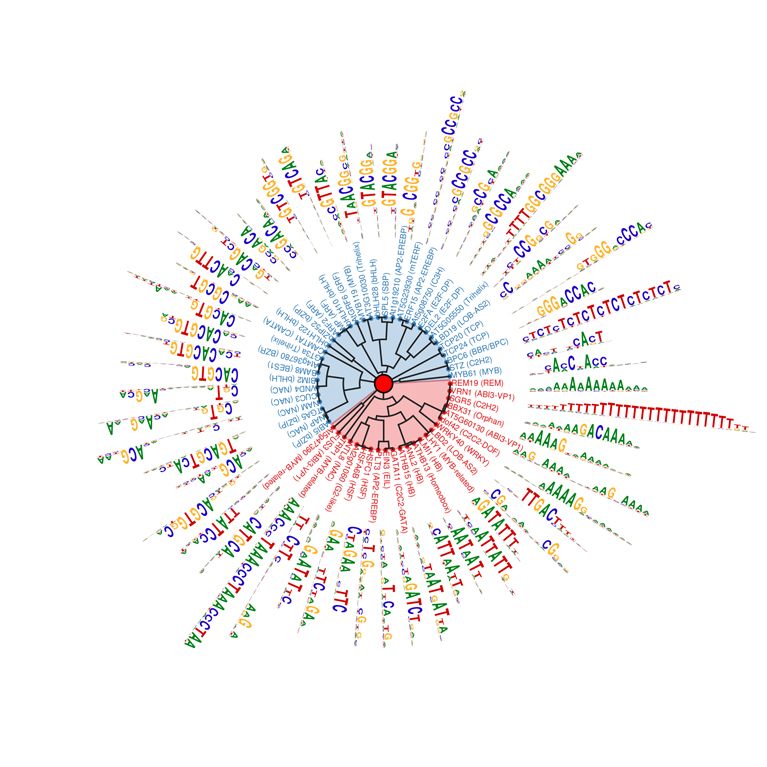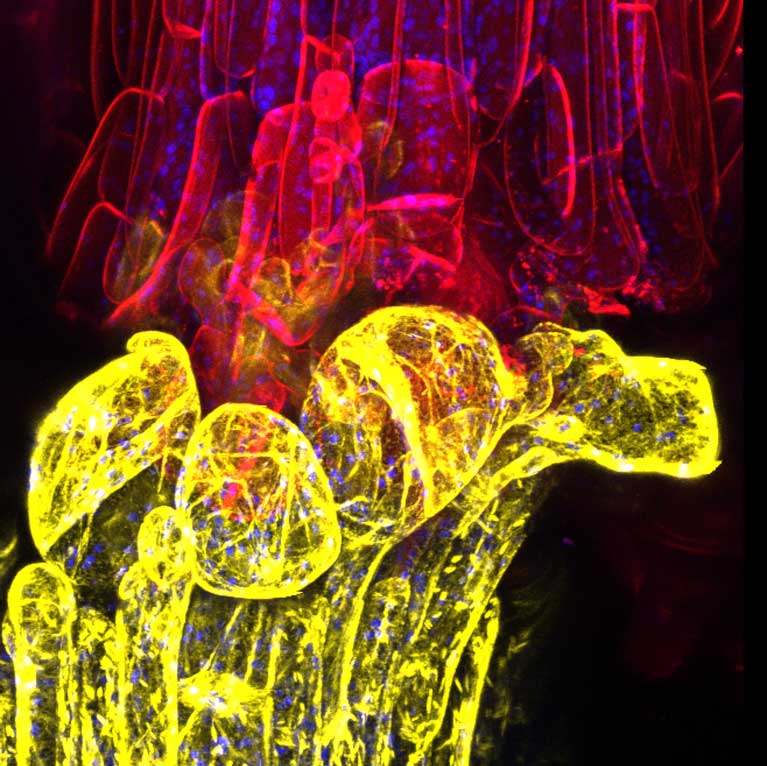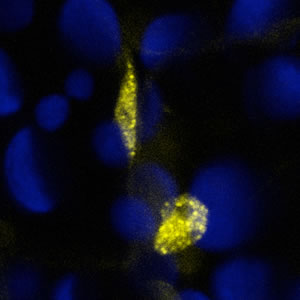News
Study reveals key gene protecting plants from harmful metals in soil
LA JOLLA—The negative impact of human activity on Earth doesn’t just affect our planet’s atmosphere—it goes much deeper, into its soils. For instance, excessive application of manure or sewage sludge can increase heavy metal concentrations in agricultural land where vital crops are grown. One of these heavy metals is zinc, a micronutrient necessary for plant and animal health. In excess, however, zinc can be extremely damaging to sensitive plant species.
Salk Professor Joanne Chory named 2024 Wolf Prize Laureate in Agriculture
LA JOLLA—Salk Institute Professor Joanne Chory has been selected by the Wolf Foundation to receive a 2024 Wolf Prize in the field of agriculture for her “key discoveries on plant developmental biology of relevance for crop improvements.” The award is endowed annually to scientists and artists worldwide for their “outstanding achievements in advancing science and the arts for the betterment of humanity.”
Key nutrients help plants beat the heat
LA JOLLA—Global temperatures are on the rise, with experts projecting an increase of 2.7°F by 2050. Because plants cannot regulate their own temperatures, they are especially sensitive to these temperature changes. In higher temperatures, plants instruct their root systems to grow faster, creating long roots that stretch through the soil to absorb more water and nutrients. While this response may help the plants in the short term, new research suggests it’s both unsustainable for the plants and potentially harmful for humans in the long term.
Artificial intelligence helps scientists engineer plants to fight climate change
LA JOLLA—The Intergovernmental Panel on Climate Change (IPCC) declared that removing carbon from the atmosphere is now essential to fighting climate change and limiting global temperature rise. To support these efforts, Salk scientists are harnessing plants’ natural ability to draw carbon dioxide out of the air by optimizing their root systems to store more carbon for a longer period of time.
Controlling root growth direction could help save crops and mitigate climate change
LA JOLLA—Above ground, plants stretch toward the sun. Below ground, plants tunnel through the earth. As roots soak up water and nutrients from surrounding soil, they grow and stretch to develop distinct root system architectures. The root system architecture determines whether roots remain in the shallow soil layers or grow steeper and reach deeper soil layers. Root systems are central to plant survival and productivity, determining the plant’s access to nutrients and water and, therefore, the plant’s ability to withstand nutrient depletion and extreme weather like drought.
Salk Professor Joanne Chory honored with Benjamin Franklin Medal in Life Science
LA JOLLA—Salk Institute Professor Joanne Chory has been selected by the Franklin Institute in Philadelphia to receive a Benjamin Franklin Medal in Life Science for her achievements in plant science. She will receive a 14-karat gold medal and a $10,000 honorarium at the Franklin Institute Awards Ceremony in April 2024. Chory joins other extraordinary scientists and engineers as a Franklin laureate, including Nikola Tesla, Marie and Pierre Curie, Thomas Edison, Albert Einstein, and Jane Goodall, among others.
Iron influences plant immunity and may promote resiliency against climate change
LA JOLLA—Plants and animals alike rely on iron for growth and regulation of microbiomes—collections of bacteria, fungi, and more that co-exist in places like the human gut or the soil around a plant’s roots. Plants face a special challenge when acquiring iron, since the strategies plants use to increase iron availability alter the root microbiome and can inadvertently benefit harmful soil-dwelling bacteria.
Salk teams assemble first full epigenomic cell atlas of the mouse brain
LA JOLLA—Salk Institute researchers, as part of a worldwide initiative to revolutionize scientists’ understanding of the brain, analyzed more than 2 million brain cells from mice to assemble the most complete atlas ever of the mouse brain. Their work, published December 13, 2023 in a special issue of Nature, not only details the thousands of cell types present in the brain but also how those cells connect and the genes and regulatory programs that are active in each cell.
Seven Salk scientists named among best and most highly cited researchers in the world
LA JOLLA—Salk Professors Joseph Ecker, Ronald Evans, Satchidananda Panda, Rusty Gage, and Kay Tye, as well as Assistant Professor Jesse Dixon, have been named to the Highly Cited Researchers list by Clarivate. The 2023 list includes 6,849 researchers from 67 countries, all of whom demonstrate “significant and broad influence reflected in their publication of multiple highly cited papers over the last decade.” This is the ninth consecutive year that Ecker and Gage have made the list. Joseph Nery, a research assistant II in the Ecker lab, was also included on the list.
“A new era in brain science”: Salk researchers unveil human brain cell atlas
LA JOLLA—Salk Institute researchers, as part of a larger collaboration with research teams around the world, analyzed more than half a million brain cells from three human brains to assemble an atlas of hundreds of cell types that make up a human brain in unprecedented detail.
Seeing the insides of plants in 3D
LA JOLLA—The cellular life inside a plant is as vibrant as the blossom. In each plant tissue—from root tip to leaf tip—there are hundreds of cell types that relay information about functional needs and environmental changes. Now, a new technology developed by Salk scientists can capture this internal plant world at an unprecedented resolution, opening the door for understanding how plants respond to a changing climate and leading to more resilient crops.
Salk Institute receives $50 million from Hess Corporation to mitigate climate change through plant science
LA JOLLA—Hess Corporation is donating $50 million to the Salk Institute’s Campaign for Discovery: The Power of Science, a seven-year, $750 million comprehensive fundraising campaign to attract the people and build the technology and space necessary to accelerate critical research. This gift will specifically advance Salk’s Harnessing Plants Initiative—an effort to mitigate climate change by optimizing plants and supporting wetlands to increase capture of excess atmospheric carbon—and provide vital infrastructure for this work by establishing the new Hess Center for Plant Science.
Salk Institute Professors Joanne Chory and Wolfgang Busch to speak at PlantACT!
LA JOLLA—PlantACT! Plants for Climate Action, a European initiative founded to unite plant science experts in the effort to mitigate climate change, will welcome Salk Professors Joanne Chory and Wolfgang Busch to an upcoming two-day event in New York City. The event, called Growing a Resilient Society and hosted by the University of Cologne New York Office and partners, will feature a free public panel discussion with Chory and an invite-only experts’ workshop research presentation by Busch.
Ten Salk professors named among best and most highly cited researchers in the world
LA JOLLA—Salk Professors Joseph Ecker, Ronald Evans, Rusty Gage, Christian Metallo, Satchidananda Panda, Reuben Shaw, and Kay Tye, along with Assistant Professor Jesse Dixon, have been named to the Highly Cited Researchers list by Clarivate. This year’s list includes 6,938 researchers from 69 countries and identifies researchers who demonstrate “significant influence in their chosen field or fields through the publication of multiple highly cited papers.” Ecker and Gage have been named to this list every year since 2014, when the regular annual rankings began. Joseph Nery, a research assistant II in the Ecker lab, was also included on the list.
Salk Institute to lead $126 million effort to map the aging human brain
LA JOLLA—With a five-year, $126 million grant from the National Institutes of Health (NIH), a team led by Salk Institute scientists has launched a new Center for Multiomic Human Brain Cell Atlas. Part of the NIH’s Brain Research Through Advancing Innovative Neurotechnologies® (BRAIN) Initiative, the project aims to describe the cells that make up the human brain in unprecedented molecular detail, classify brain cells into more precise subtypes, and pinpoint the location of each cell in the brain. What’s more, the team will track how these features change from early to late life.
How light and temperature work together to affect plant growth
LA JOLLA—Plants lengthen and bend to secure access to sunlight. Despite observing this phenomenon for centuries, scientists do not fully understand it. Now, Salk scientists have discovered that two plant factors—the protein PIF7 and the growth hormone auxin—are the triggers that accelerate growth when plants are shaded by canopy and exposed to warm temperatures at the same time.
The best offense is a great defense for some carnivorous plants
LA JOLLA–Insect-eating plants have fascinated biologists for more than a century, but how plants evolved the ability to capture and consume live prey has largely remained a mystery. Now, Salk scientists, along with collaborators from Washington University in St. Louis, have investigated the molecular basis of plant carnivory and found evidence that it evolved from mechanisms plants use to defend themselves.
New technology enables unprecedented glimpse inside single brain cells
LA JOLLA—Salk Institute researchers have developed a new genomic technology to simultaneously analyze the DNA, RNA and chromatin—a combination of DNA and protein—from a single cell. The method, which took five years to develop, is an important step forward for large collaborations where multiple teams are working simultaneously to classify thousands of new cell types. The new technology, published in Cell Genomics on March 9, 2022, will help streamline analyses.
Plants rely on the CLASSY gene family to diversify their epigenomes
LA JOLLA—What determines how a cell’s genome is regulated to ensure proper growth and development? Turns out, the parts of the genome that are turned on or off in each cell-type or tissue play a major role in this process. Now, a team at Salk has shown that the CLASSY gene family regulates which parts of the genome are turned off in a tissue-specific manner. The CLASSYs essentially control where the genome is marked by DNA methylation—the addition of methyl chemical groups to the DNA that act like tags saying, “turn off.” Because DNA methylation exists across diverse organisms, including plants and animals, this research has broad implications for both agriculture and medicine. The work, published in Nature Communications on January 11, 2022, identifies the CLSY genes as major factors underlying epigenetic diversity in plant tissues.
Six Salk professors named among most highly cited researchers in the world
LA JOLLA—Salk Professors Joanne Chory, Joseph Ecker, Rusty Gage, Satchidananda Panda, Reuben Shaw and Kay Tye have been named to the Highly Cited Researchers list by Clarivate. The list identifies researchers who demonstrate “significant influence in their chosen field or fields through the publication of multiple highly cited papers.” Chory, Ecker and Gage have been named to this list every year since 2014, when the regular annual rankings began. This is Tye’s fifth, Shaw’s third and Panda’s first time receiving the designation. Additionally, Ecker appeared in two separate categories: “plant and animal science” and “molecular biology and genetics” and is one of 3.4 percent of researchers selected in two fields. Joseph Nery, a research assistant II in the Ecker lab, was also included on the list.
Call-and-response circuit tells neurons when to grow synapses
LA JOLLA—Brain cells called astrocytes play a key role in helping neurons develop and function properly, but there’s still a lot scientists don’t understand about how astrocytes perform these important jobs. Now, a team of scientists led by Associate Professor Nicola Allen has found one way that neurons and astrocytes work together to form healthy connections called synapses. This insight into normal astrocyte function could help scientists better understand disorders linked to problems with neuronal development, including autism spectrum disorders. The study was published September 8, 2021, in the journal eLife.
Salk teams advance efforts to treat, prevent and cure brain disorders, via NIH brain atlas
LA JOLLA—It takes billions of cells to make a human brain, and scientists have long struggled to map this complex network of neurons. Now, dozens of research teams around the country, led in part by Salk scientists, have made inroads into creating an atlas of the mouse brain as a first step toward a human brain atlas.
Salk Institute among cross-collaborative teams gifted $220 million by Wu Tsai Human Performance Alliance
LA JOLLA—A Salk Institute team led by Professor Satchin Panda, along with teams from five other organizations, have been awarded a total of $220 million by the Joe and Clara Tsai Foundation’s Human Performance Alliance, whose philanthropic investment aims to transform human health on a global scale through the discovery and translation of the biological principles underlying human performance.
How plants quickly adapt to shifting environmental conditions
LA JOLLA—Scientists—and gardeners—have long known that plants grow taller and flower sooner when they are shaded by close-growing neighbors. Now, for the first time, researchers at the Salk Institute have shown the detailed inner workings of this process.
New protein helps carnivorous plants sense and trap their prey
LA JOLLA—The brush of an insect’s wing is enough to trigger a Venus flytrap to snap shut, but the biology of how these plants sense and respond to touch is still poorly understood, especially at the molecular level. Now, a new study by Salk and Scripps Research scientists identifies what appears to be a key protein involved in touch sensitivity for flytraps and other carnivorous plants.
Salk Professor Wolfgang Busch named first incumbent of the Hess Chair in Plant Science
LA JOLLA—Salk Professor Wolfgang Busch has been recognized for his contributions and dedication to advancing science through research by being named the first holder of the Hess Chair in Plant Science, effective April 1, 2021.
Five Salk professors named among most highly cited researchers in the world
LA JOLLA—Salk Professors Joanne Chory, Joseph Ecker, Rusty Gage, Reuben Shaw and Kay Tye have been named to the Highly Cited Researchers list by Clarivate. The list identifies researchers who demonstrate “significant influence in their chosen field or fields through the publication of multiple highly cited papers.” Professors Chory, Ecker and Gage have been named to this list every year since 2014, when the regular annual rankings began. This is Professor Tye’s fourth consecutive time and Professor Shaw’s second consecutive time receiving the designation. Joseph Nery, a research assistant II in the Ecker lab, was also included on the list.
Salk Institute and Sempra Energy announce project to advance plant-based carbon capture and storage research
SAN DIEGO and LA JOLLA—The Salk Institute and Sempra Energy (NYSE: SRE) today announced a new project to advance plant-based carbon capture and sequestration research, education and implementation to help address the climate crisis. Sempra Energy is donating $2 million to the Salk Institute to help fund the five-year project.
Joanne Chory wins the 2020 Pearl Meister Greengard Prize
Joanne Chory, who pioneered the application of molecular genetics to plant biology and transformed our understanding of photosynthesis, will receive the 2020 Pearl Meister Greengard Prize, Rockefeller’s preeminent award recognizing outstanding women scientists. Chory is the Howard H. and Maryam R. Newman Chair in Plant Biology and director of the Plant Molecular and Cellular Biology Laboratory at The Salk Institute. She is also a Howard Hughes Medical Institute Investigator. Frances Beinecke, former president of the Natural Resources Defense Council, will present the prize in a virtual ceremony hosted by Rockefeller on October 22.
New maps of chemical marks on DNA pinpoint regions relevant to many developmental diseases
LA JOLLA—In research that aims to illuminate the causes of human developmental disorders, Salk scientists have generated 168 new maps of chemical marks on strands of DNA—called methylation—in developing mice.
Salk promotes Wolfgang Busch to full professor
LA JOLLA—The Salk Institute has promoted Wolfgang Busch to the rank of professor for his groundbreaking contributions to plant biology. The promotion was based on recommendations by Salk faculty and nonresident fellows, and approved by President Rusty Gage and the Institute’s Board of Trustees.
How plants sound the alarm about danger
LA JOLLA—Just like humans and other animals, plants have hormones. One role of plant hormones is to perceive trouble—whether an insect attack, drought or intense heat or cold—and then signal to the rest of the plant to respond.
The Salk Institute to receive $12.5 million gift from Hess Corporation to accelerate development of plant-based carbon capture and storage
LA JOLLA—Salk’s Harnessing Plants Initiative (HPI) will receive a $12.5 million gift from Hess Corporation (NYSE: HES) to advance two projects to enhance plants’ natural ability to store carbon and mitigate the effects of climate change: the CRoPS (CO2 Removal on a Planetary Scale) program and the Coastal Plant Restoration (CPR) program. These projects build on the Salk discovery of a crucial gene that will help the team develop plants with larger root systems capable of absorbing and storing potentially billions of tons of carbon per year from the atmosphere.
Eight Salk professors named among most highly cited researchers in the world
LA JOLLA—Salk Professors Joanne Chory, Joseph Ecker, Ronald Evans, Rusty Gage, Juan Carlos Izpisua Belmonte, Terrence Sejnowski, Reuben Shaw and Kay Tye have been named to the Highly Cited Researchers list by Clarivate Analytics. The list selects researchers for demonstrating “significant and broad influence” reflected by the production of multiple highly cited papers that rank in the top 1 percent by citations for field and year.
Salk Institute hits play on new podcast series
LA JOLLA—A new podcast series called Where Cures Begin launches this week and features one-on-one conversations with Salk researchers working at the forefront of their respective scientific fields, from cancer and neuroscience to plant biology, circadian science and more. The eight episodes of season 1, which will be released weekly beginning October 30, 2019, include interviews with the following Salk scientists:
Salk scientists receive $12.9 million from NIH BRAIN Initiative
LA JOLLA—Salk Institute scientists Nicola Allen, Eiman Azim, Margarita Behrens, and Joseph Ecker have been named recipients in the 2019 round of grants from the National Institutes of Health (NIH) to better understand the brain.
Salk scientists develop technique to reveal epigenetic features of cells in the brain
LA JOLLA—The brain’s prefrontal cortex, which gives us our ability to solve problems and plan ahead, contains billions of cells. But understanding the large diversity of cell types in this critical region, each with unique genetic and molecular properties, has been challenging.
Getting to the root of how plants tolerate too much iron
LA JOLLA—Iron is essential for plant growth, but with heavy rainfall and poor aeration, many acidic soils become toxic with excess iron. In countries with dramatic flood seasons, such as in West Africa and tropical Asia, toxic iron levels can have dire consequences on the availability of staple foods, such as rice.
Salk scientists Margarita Behrens and Joseph Ecker to receive over $1.6 million from Chan Zuckerberg Initiative to expand Human Cell Atlas
LA JOLLA–Joseph Ecker, professor and director of Salk’s Genomic Analysis Laboratory and Margarita Behrens, a research professor in Salk’s Computational Neurobiology Laboratory, will receive over $1.6 million over three years as part of a Seed Network Grant from the Chan Zuckerberg Initiative (CZI).
Gene identified that will help develop plants to fight climate change
LA JOLLA—Hidden underground networks of plant roots snake through the earth foraging for nutrients and water, similar to a worm searching for food. Yet, the genetic and molecular mechanisms that govern which parts of the soil roots explore remain largely unknown. Now, Salk Institute researchers have discovered a gene that determines whether roots grow deep or shallow in the soil.
New computational tool lets researchers identify cells based on their chromosome shape
LA JOLLA—In the nucleus of every living cell, long strands of DNA are tightly folded into compact chromosomes. Now, thanks to a new computational approach developed at the Salk Institute, researchers can use the architecture of these chromosome folds to differentiate between types of cells. The information about each cell’s chromosome structure will give scientists a better understanding of how interactions between different regions of DNA play a role in health and disease. The study was published in the Proceedings of the National Academy of Sciences the week of July 8, 2019.
Editing of RNA may play a role in chloroplast-to-nucleus communication
LA JOLLA—What will a three-degree-warmer world look like? How will plants fare in more extreme weather conditions? When experiencing stress or damage from various sources, plants use chloroplast-to-nucleus communication to regulate gene expression and help them cope.
Salk Institute initiative to receive more than $35 million to fight climate change
LA JOLLA—The Salk Institute’s Harnessing Plants Initiative to combat climate change using plants, led by Professor Joanne Chory, executive director of the Harnessing Plants Initiative, will receive funding of more than $35 million from over 10 individuals and organizations through The Audacious Project, a highly competitive program housed at TED, the nonprofit devoted to ideas worth spreading. The collective commitments represent one of the largest gifts to a single project in the Institute’s history.
Salk promotes Nicola Allen and Julie Law to associate professor
LA JOLLA—The Salk Institute has promoted Nicola Allen and Julie Law to the rank of associate professor for their notable contributions to neurobiology and plant biology, respectively. The promotions were based on recommendations by Salk faculty and nonresident fellows, and approved by President Rusty Gage and the Institute’s Board of Trustees.
New technologies enable better-than-ever details on genetically modified plants
LA JOLLA—Salk researchers have mapped the genomes and epigenomes of genetically modified plant lines with the highest resolution ever to reveal exactly what happens at a molecular level when a piece of foreign DNA is inserted. Their findings, published in the journal PLOS Genetics on January 18, 2019, elucidate the routine methods used to modify plants, and offer new ways to more effectively minimize potential off-target effects.
Research confirms nerve cells made from skin cells are a valid lab model for studying disease
LA JOLLA—The incidence of some neurological diseases—especially those related to aging, such as Alzheimer’s and Parkinson’s diseases—is increasing. To better understand these conditions and evaluate potential new treatments, researchers need accurate models that they can study in the lab.
To repair DNA damage, plants need good contractors
LA JOLLA—When a building is damaged, a general contractor often oversees various subcontractors—framers, electricians, plumbers and drywall hangers—to ensure repairs are done in the correct order and on time.
Trio of Salk scientists named among most highly cited researchers in the world
LA JOLLA—Salk Professors Joanne Chory, Joseph Ecker and Rusty Gage have once again been named to the Highly Cited Researchers list by Clarivate Analytics (formerly Thomson Reuters). The list selects researchers for “exceptional research performance” demonstrated by the production of multiple highly cited papers that rank in the top 1 percent by citations for field and year. Additionally, among the 4,058 researchers named as Highly Cited, Ecker is one of 194 researchers appearing in two separate categories: “plant and animal science,” as well as “molecular biology and genetics.”
Salk awarded $19.2 million by the American Heart Association-Allen Initiative to study Alzheimer’s and aging in the brain
LA JOLLA—A team of Salk Institute researchers led by President Rusty Gage has been awarded $19.2 million over eight years by the American Heart Association-Allen Initiative in Brain Health and Cognitive Impairment to investigate mechanisms underlying Alzheimer’s disease and aging-related cognitive decline and uncover new therapies. This bold venture will comprehensively analyze interactions between five areas key to brain health: proteins, genes, metabolism, inflammation and epigenetics.
Salk Institute’s Joanne Chory awarded prestigious Gruber Prize
LA JOLLA—Salk Institute scientist and professor Joanne Chory, one of the world’s foremost plant biologists, who is now leading efforts to combat global warming with plant-based solutions, has been awarded a 2018 Gruber Genetics Prize by the Gruber Foundation for her “groundbreaking work in identifying the basic regulatory and biochemical mechanisms underlying the development of plants.” She shares the $500,000 award with Elliot Meyerowitz of the California Institute of Technology.
Understanding how DNA is selectively tagged with “do not use” marks
LA JOLLA—Not all of your genome needs to be active at any given time. Some regions are prone to hopping around the genome in problematic ways if left unchecked; others code for genes that need to be turned off in certain cells or at certain times. One way that cells keep these genetic elements under control is with the chemical equivalent of a “do not use” sign. This chemical signal, called DNA methylation, is known to vary in different cell types or at different stages of cellular development, but the details of how cells regulate exactly where to put DNA methylation marks have remained unclear.
Self-defense for plants
LA JOLLA—When you see brown spots on otherwise healthy green leaves, you may be witnessing a plant’s immune response as it tries to keep a bacterial infection from spreading. Some plants are more resistant to such infections than others, and plant biologists want to understand why. Salk Institute scientists studying a plant protein called SOBER1 recently discovered one mechanism by which, counterintuitively, plants seem to render themselves less resistant to infection.
Salk scientists Joanne Chory and Terrence Sejnowski named to National Academy of Inventors
LA JOLLA—Salk Institute Professors Joanne Chory and Terrence Sejnowski have been elected Fellows of the National Academy of Inventors (NAI). Chory is director of the Salk Institute’s Plant Molecular and Cellular Biology Laboratory, a Howard Hughes Medical Institute (HHMI) Investigator and holder of the Howard H. and Maryam R. Newman Chair in Plant Biology. Sejnowski is head of the Institute’s Computational Neurobiology Laboratory, an HHMI Investigator and holder of the Francis Crick Chair.
Salk Institute’s Joanne Chory awarded prestigious Breakthrough Prize in Life Sciences
La Jolla—Salk Institute scientist Joanne Chory, one of the world’s preeminent plant biologists who is now leading the charge to combat global warming with plant-based solutions, has been awarded a 2018 Breakthrough Prize for her pioneering work deciphering how plants optimize their growth, development and cellular structure to transform sunlight into chemical energy.
Salk scientists lead $25 million initiative to develop atlas of brain cell types
LA JOLLA—Salk Institute scientists will lead a multimillion-dollar, five-year initiative to revolutionize our understanding of the human brain by systematically identifying and cataloging cell types across the mammalian brain, the National Institutes of Health has announced. The effort, which is part of the Brain Research through Advancing Innovative Neurotechnologies (BRAIN) Initiative®, will be co-led by Salk Professors Joseph Ecker and Ed Callaway. Researchers from USC and UC San Diego will also participate in the collaboration.
New kinds of brain cells revealed
LA JOLLA—Under a microscope, it can be hard to tell the difference between any two neurons, the brain cells that store and process information. So scientists have turned to molecular methods to try to identify groups of neurons with different functions.
How plant architectures mimic subway networks
LA JOLLA—It might seem like a tomato plant and a subway system don’t have much in common, but both, it turns out, are networks that strive to make similar tradeoffs between cost and performance.
How plants grow like human brains
LA JOLLA—Plants and brains are more alike than you might think: Salk scientists discovered that the mathematical rules governing how plants grow are similar to how brain cells sprout connections. The new work, published in Current Biology on July 6, 2017, and based on data from 3D laser scanning of plants, suggests there may be universal rules of logic governing branching growth across many biological systems.
New method to rapidly map the “social networks” of proteins
LA JOLLA—Salk scientists have developed a new high-throughput technique to determine which proteins in a cell interact with each other. Mapping this network of interactions, or “interactome,” has been slow going in the past because the number of interactions that could be tested at once was limited. The new approach, published June 26 in Nature Methods, lets researchers test millions of relationships between thousands of proteins in a single experiment.
A better dye job for roots—in plants
LA JOLLA—(June 1, 2017) Once we start coloring our hair, we may be surprised to learn that we begin to have a problem in common with plant biologists: finding the right dye for our roots. In the case of the biologists, just the right chemical is needed to measure exactly how plant roots grow. Now, a researcher at the Salk Institute has discovered a fluorescent dye that, paired with other imaging techniques, reveals root growth to be influenced by a major plant hormone more than previously thought.
Helping plants pump iron
LA JOLLA—Just like people, plants need iron to grow and stay healthy. But some plants are better at getting this essential nutrient from the soil than others. Now, a study led by a researcher at the Salk Institute has found that variants of a single gene can largely determine a plant’s ability to thrive in environments where iron is scarce.
Finding our way around DNA
LA JOLLA—Most of us would be lost without Google maps or similar route-guidance technologies. And when those mapping tools include additional data about traffic or weather, we can navigate even more effectively. For scientists who navigate the mammalian genome to better understand genetic causes of disease, combining various types of data sets makes finding their way easier, too.
Building a better brain
LA JOLLA—When you build models, whether ships or cars, you want them to be as much like the real deal as possible. This quality is even more crucial for building model organs, because disease treatments developed from these models have to be safe and effective for humans. Now, scientists at the Salk Institute have studied a 3D “mini-brain” grown from human stem cells and found it to be structurally and functionally more similar to real brains than the 2D models in widespread use. The discovery, appearing in the December 20, 2016, issue of Cell Reports, indicates that the new model could better help scientists understand brain development as well as neurological diseases like Alzheimer’s or schizophrenia.
Salk Institute hires star scientists in plant biology and cancer research
LA JOLLA—The Salk Institute is pleased to welcome Wolfgang Busch as an associate professor and Edward Stites as an assistant professor, leaders of plant science and cancer research, respectively.
New technique could increase success of infertility treatment
PORTLAND, Ore, and LA JOLLA, Calif.—Families struggling with infertility or a genetic predisposition for debilitating mitochondrial diseases may someday benefit from a new breakthrough led by scientists at OHSU and the Salk Institute for Biological Studies.
Molecular conductors help plants respond to drought
LA JOLLA—We can tell when plants need water: their leaves droop and they start to look dry. But what’s happening on a molecular level?
Gauging stem cells for regenerative medicine
LA JOLLA—Salk scientists and colleagues have proposed new molecular criteria for judging just how close any line of laboratory-generated stem cells comes to mimicking embryonic cells seen in the very earliest stages of human development, known as naïve stem cells. The tests found that no current protocols lead to truly naïve stem cells, but the guidelines may help researchers achieve that goal by pointing out where each current method falls short. Generating naïve stem cells would be a boon to both basic research and to medical applications of stem cells, such as growing tissue for organ replacement.
Salk researchers chart landscape of genetic and epigenetic regulation in plants
LA JOLLA—A new technique developed by Salk Institute scientists for rapidly mapping regions of DNA targeted by regulatory proteins could give scientists insight into what makes some plants drought tolerant or disease resistant, among other traits.
Three Salk scientists make Thomson Reuters’ list of “The World’s Most Influential Scientific Minds”
Salk Institute scientists Joanne Chory, Joseph Ecker and Rusty Gage have been named to the 2015 list of “The World’s Most Influential Scientific Minds” by Thomson Reuters.
Grafted plants’ genomes can communicate with each other
LA JOLLA—Agricultural grafting dates back nearly 3,000 years. By trial and error, people from ancient China to ancient Greece realized that joining a cut branch from one plant onto the stalk of another could improve the quality of crops.
Here comes the sun: cellular sensor helps plants find light
LA JOLLA—Despite seeming passive, plants wage wars with each other to outgrow and absorb sunlight. If a plant is shaded by another, it becomes cut off from essential sunlight it needs to survive.
Cellular damage control system helps plants tough it out
LA JOLLA–As food demands rise to unprecedented levels, farmers are in a race against time to grow plants that can withstand environmental challenges–infestation, climate change and more. Now, new research at the Salk Institute, published in Science on October 23, 2015, reveals details into a fundamental mechanism of how plants manage their energy intake, which could potentially be harnessed to improve yield.
Salk plant biologist Julie Law named Rita Allen Foundation Scholar
LA JOLLA—Salk Institute plant biologist Julie Law has been named a Rita Allen Foundation Scholar, a distinction given to biomedical scientists whose research holds exceptional promise for advancing the frontiers of knowledge about how biological systems function in health and disease.
Salk scientists reveal epigenome maps of the human body’s major organs
LA JOLLA–For more than a decade, scientists have had a working map of the human genome, a complete picture of the DNA sequence that encodes human life. But new pages are still being added to that atlas: maps of chemical markers called methyl groups that stud strands of DNA and influence which genes are repressed and when.
Salk scientists Joseph Ecker and Dennis O’Leary elected to American Academy of Arts & Sciences
LA JOLLA–Salk Institute Professors Joseph Ecker and Dennis O’Leary have received the prestigious honor of being elected to the American Academy of Arts and Sciences (AAAS) class of 2015. One of the nation’s most prominent honorary societies, AAAS are among the 197 accomplished leaders from academia, business, public affairs, the humanities and the arts accepted to this year’s class. Its members include winners of the Nobel Prize and Pulitzer Prize; MacArthur and Guggenheim Fellowships; and Grammy, Emmy, Oscar and Tony Awards.
Salk scientists receive $3 million for BRAIN Initiative grant
LA JOLLA—Joseph Ecker, a Salk professor and Howard Hughes Medical Institute investigator, and Margarita Behrens, Salk staff scientist, have been named recipients in the 2014 round of grants from the National Institutes of Health (NIH) through the BRAIN (Brain Research through Advancing Innovative Neurotechnologies) Initiative for leading-edge work in neuroscience. The grant, announced September 30, provides more than $3 million in funding to the Salk scientists over three years.
Some stem cell methods closer to “gold standard” than others
LA JOLLA—Researchers around the world have turned to stem cells, which have the potential to develop into any cell type in the body, for potential regenerative and disease therapeutics.
Salk Institute and Stanford University to lead new $40 million stem cell genomics center
LA JOLLA—The Salk Institute for Biological Studies will join Stanford University in leading a new Center of Excellence in Stem Cell Genomics, created through a $40 million award by California’s stem cell agency, the California Institute for Regenerative Medicine.
Unique epigenomic code identified during human brain development
LA JOLLA,CA—Changes in the epigenome, including chemical modifications of DNA, can act as an extra layer of information in the genome, and are thought to play a role in learning and memory, as well as in age-related cognitive decline. The results of a new study by scientists at the Salk Institute for Biological Studies show that the landscape of DNA methylation, a particular type of epigenomic modification, is highly dynamic in brain cells during the transition from birth to adulthood, helping to understand how information in the genomes of cells in the brain is controlled from fetal development to adulthood. The brain is much more complex than all other organs in the body and this discovery opens the door to a deeper understanding of how the intricate patterns of connectivity in the brain are formed.
Scientists identify thousands of plant genes activated by ethylene gas
LA JOLLA, CA—It’s common wisdom that one rotten apple in a barrel spoils all the other apples, and that an apple ripens a green banana if they are put together in a paper bag. Ways to ripen, or spoil, fruit have been known for thousands of years-as the Bible can attest-but now the genes underlying these phenomena of nature have been revealed.
Smoke signals: How burning plants tell seeds to rise from the ashes
LA JOLLA, CA—In the spring following a forest fire, trees that survived the blaze explode in new growth and plants sprout in abundance from the scorched earth. For centuries, it was a mystery how seeds, some long dormant in the soil, knew to push through the ashes to regenerate the burned forest.
Hidden layer of genome unveils how plants may adapt to environments throughout the world
LA JOLLA, CA—Scientists at the Salk Institute for Biological Studies have identified patterns of epigenomic diversity that not only allow plants to adapt to various environments, but could also benefit crop production and the study of human diseases.
Plants cut the mustard for basic discoveries in metabolism
LA JOLLA, CA—You might think you have nothing in common with mustard except hotdogs. Yet based on research in a plant from the mustard family, Salk scientists have discovered a possible explanation for how organisms, including humans, directly regulate chemical reactions that quickly adjust the growth of organs. These findings overturn conventional views of how different body parts coordinate their growth, shedding light on the development of more productive plants and new therapies for metabolic diseases.
More than 3,000 epigenetic switches control daily liver cycles
LA JOLLA, CA—When it’s dark, and we start to fall asleep, most of us think we’re tired because our bodies need rest. Yet circadian rhythms affect our bodies not just on a global scale, but at the level of individual organs, and even genes.
Two more Salk scientists elected as AAAS Fellows
LA JOLLA,CA—Salk faculty members Joseph Ecker and Joseph Noel have been named as 2012 Fellows by the American Association for the Advancement of Science (AAAS), the world’s largest general scientific society and the publisher of the journal Science. Election as an AAAS Fellow is among the highest honors in American science and scholars are selected by their peers for “scientifically or socially distinguished efforts to advance science or its applications,” according to election administrators.
Discovery may help protect crops from stressors
LA JOLLA, CA—Scientists at the Salk Institute for Biological Studies have discovered a key genetic switch by which plants control their response to ethylene gas, a natural plant hormone best known for its ability to ripen fruit, but which, under stress conditions, can cause wilted leaves, premature aging and spoilage from over-ripening. The findings, published August 30 in Science magazine, may hold the key to manipulating plants’ ethylene on/off switch, allowing them to balance between drought resistance and growth and, therefore, decrease crop losses from drought conditions.
Planting the seeds of defense
LA JOLLA, CA—It was long thought that methylation, a crucial part of normal organism development, was a static modification of DNA that could not be altered by environmental conditions. New findings by researchers at the Salk Institute for Biological Studies, however, suggest that the DNA of organisms exposed to stress undergo changes in DNA methylation patterns that alter how genes are regulated.
Salk scientists discover how plants grow to escape shade
LA JOLLA, CA—Mild mannered though they seem, plants are extremely competitive, especially when it comes to getting their fair share of sunlight. Whether a forest or a farm, where plants grow a battle rages for the sun’s rays.
Salk professor Joanne Chory awarded 2012 Genetics Society of America Medal
LA JOLLA, CA—The Genetics Society of America(GSA) has honored Joanne Chory, Salk Institute professor and director of the Plant Molecular and Cellular Biology Laboratory and Howard H. and Maryam R. Newman Chair in Plant Biology, as the recipient of the prestigious 2012 Genetics Society of America Medal.
Are genes our destiny?
LA JOLLA, CA—A “hidden” code linked to the DNA of plants allows them to develop and pass down new biological traits far more rapidly than previously thought, according to the findings of a groundbreaking study by researchers at the Salk Institute for Biological Studies.
Scientists take a giant step for people – with plants!
La Jolla—Science usually progresses in small steps, but on rare occasions, a new combination of research expertise and cutting-edge technology produces a ‘great leap forward.’ An international team of scientists, whose senior investigators include Salk Institute plant biologist Joseph Ecker, report one such leap in the July 29, 2011 issue of Science. They describe their mapping and early analyses of thousands of protein-to-protein interactions within the cells of Arabidopsis thaliana -a variety of mustard plant that is to plant biology what the lab mouse is to human biology.
Salk scientist Joseph Ecker, appointed as Howard Hughes Medical Institute and Gordon and Betty Moore Foundation Investigator
La Jolla—Plant biologist Joseph R. Ecker, Ph.D., professor and director of the Genomic Analysis Laboratory at the Salk Institute for Biological Studies, has been selected for a prestigious position as an investigator of the Howard Hughes Medical Institute (HHMI) and the Gordon and Betty Moore Foundation (GBMF).
Plant receptors reflect different solutions for signaling problem
La Jolla—Birds do it, bees do it, and for most things biological, even plants do it. But not necessarily like their animal counterparts. A study led by Salk Institute scientists shows that a plant receptor does one of the most fundamental cellular “its”—the delivery of a hormonal signal from outside the cell to the nucleus—in a radically different way than its animal cousins. Knowing that could aid creation of techniques to speed plant growth and enhance agricultural production.
Salk professor, Joanne Chory, elected to Royal Society
LA JOLLA, CA—The Royal Society announced today that Salk Institute molecular biologist Joanne Chory, Ph.D., an expert on how plants regulate their growth, has been named a foreign member of the Royal Society, the world’s oldest scientific academy in continuous existence. She is being recognized as “a beacon of scientific excellence and relentless ambassador for plant research in the international community.”
Cell reprogramming leaves a “footprint” behind
LA JOLLA, CA—Reprogramming adult cells to recapture their youthful “can-do-it-all” attitude appears to leave an indelible mark, found researchers at the Salk Institute for Biological Studies. When the team, led by Joseph Ecker, PhD., a professor in the Genomic Analysis Laboratory, scoured the epigenomes of so-called induced pluripotent stem cells base by base, they found a consistent pattern of reprogramming errors.
Different evolutionary paths lead plants and animals to the same crossroads: tyrosine phosphorylation
LA JOLLA, CA—In analyzing the molecular sensor for the plant growth hormone brassinolide, researchers at the Salk Institute for Biological Studies discovered that although plants took an evolutionary path different from their animal cousins, they arrived at similar solutions to a common problem: How to reliably receive and process incoming signals.
Connecting the dots: How light receptors get their message across
LA JOLLA, CA—For a plant, light is life. It drives everything from photosynthesis to growth and reproduction. Yet the chain of molecular events that enables light signals to control gene activity and ultimately a plant’s architecture had remained in the dark. Now a team of researchers from the Salk Institute for Biological Studies and Duke University have identified the courier that gives the signal to revamp the plant’s gene expression pattern after photoreceptors have been activated by light.
What drives our genes? Salk researchers map the first complete human epigenome
LA JOLLA, CA—Although the human genome sequence faithfully lists (almost) every single DNA base of the roughly 3 billion bases that make up a human genome, it doesn’t tell biologists much about how its function is regulated. Now, researchers at the Salk Institute provide the first detailed map of the human epigenome, the layer of genetic control beyond the regulation inherent in the sequence of the genes themselves.
Light or fight? Scientists discover how plants make tough survival choices
La Jolla, CA — Ever since insects developed a taste for vegetation, plants have faced the same dilemma: use limited resources to out-compete their neighbors for light to grow, or, invest directly in defense against hungry insects. Now, an international team of scientists at the Salk Institute for Biological Studies and the Institute of Investigaciones Fisiológicas y Ecológicas Vinculadas a la Agronomía (IFEVA) has discovered how plants weigh the tradeoffs and redirect their energies accordingly.
Why fruits ripen and flowers die: Salk scientists discover how key plant hormone is triggered
La Jolla, CA—Best known for its effects on fruit ripening and flower fading, the gaseous plant hormone ethylene shortens the shelf life of many fruits and plants by putting their physiology on fast-forward. In recent years, scientists learned a lot about the different components that transmit ethylene signals inside cells. But a central regulator of ethylene responses, a protein known as EIN2, resisted all their efforts.
